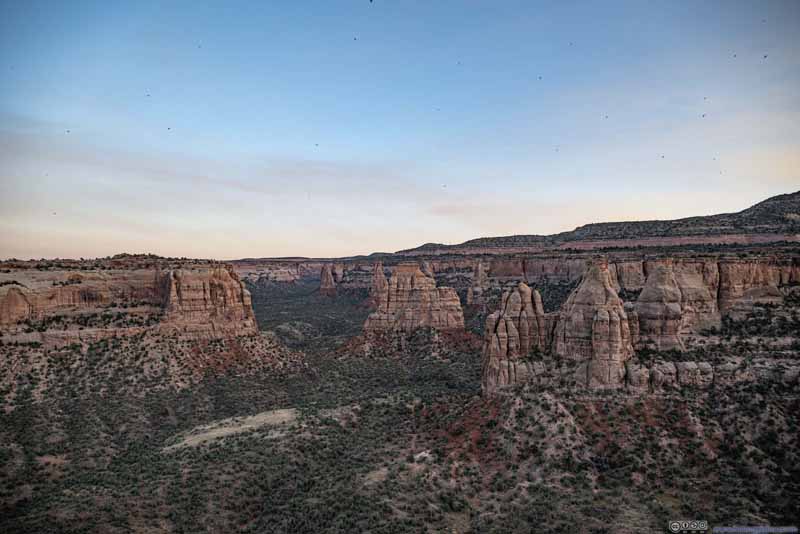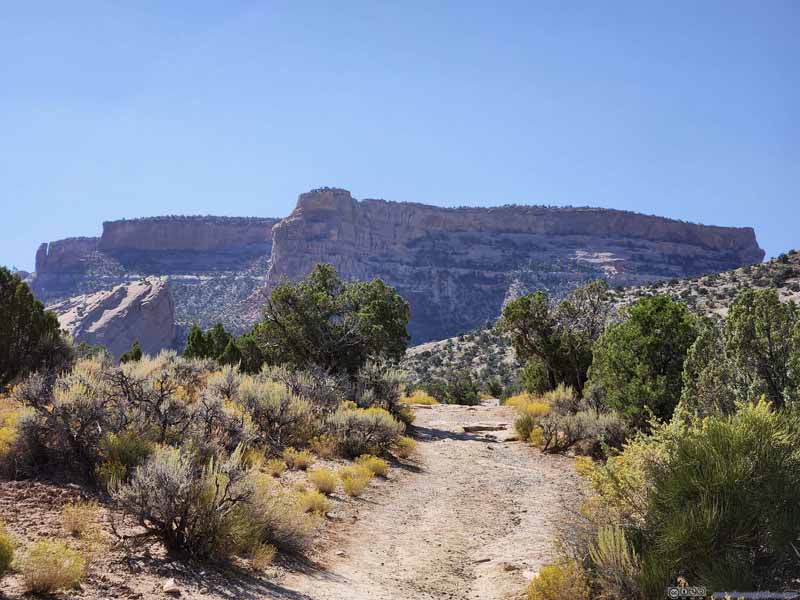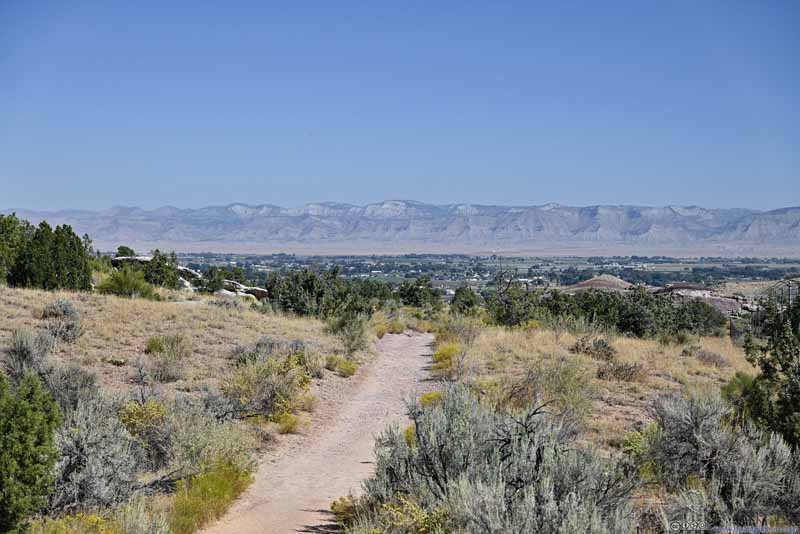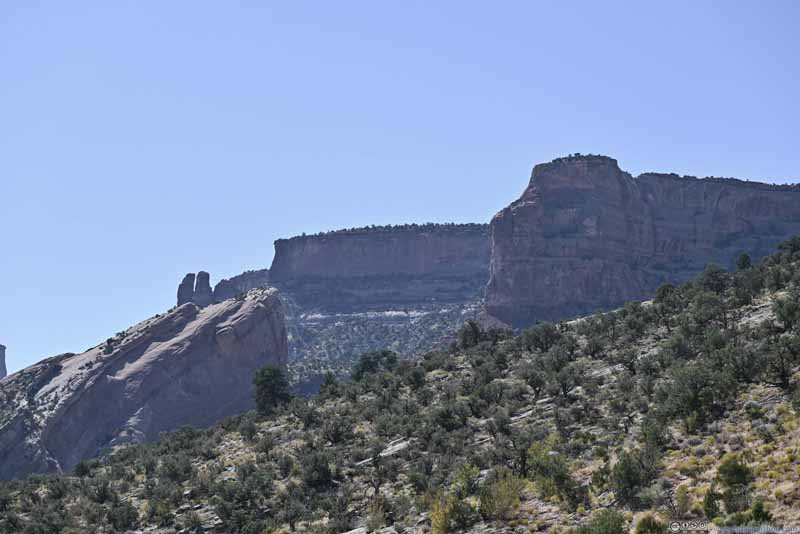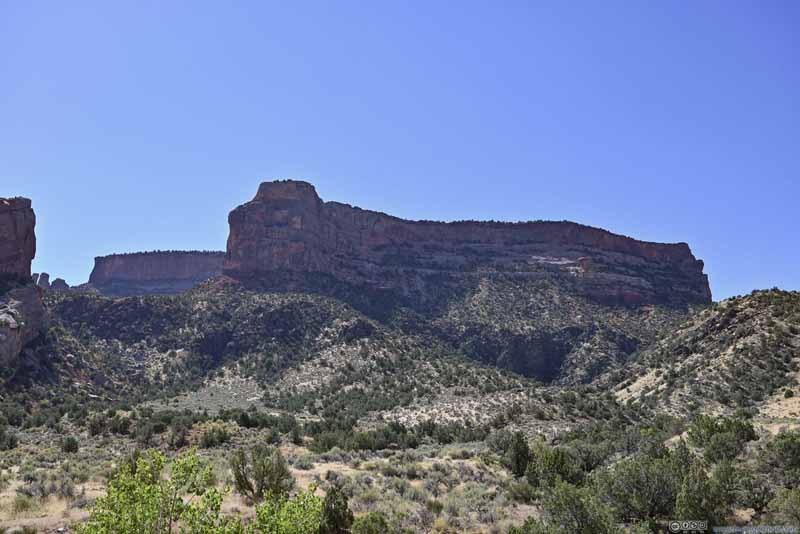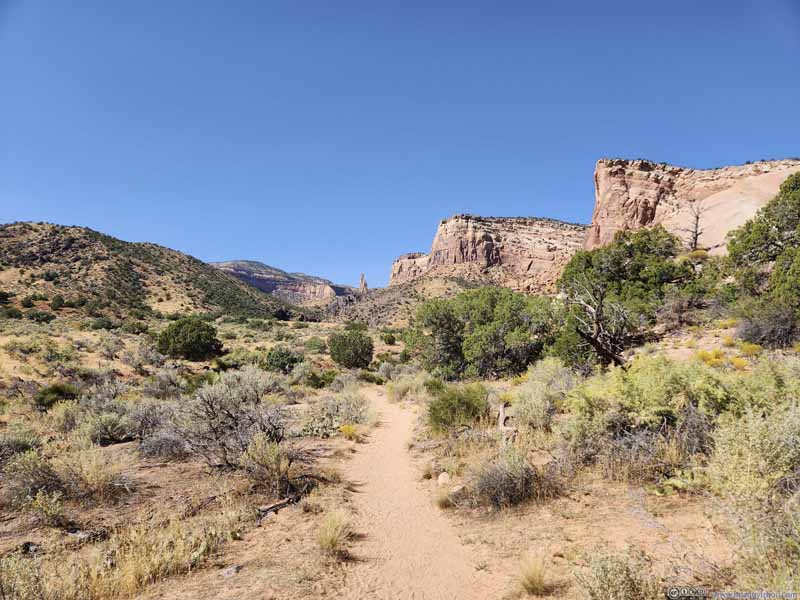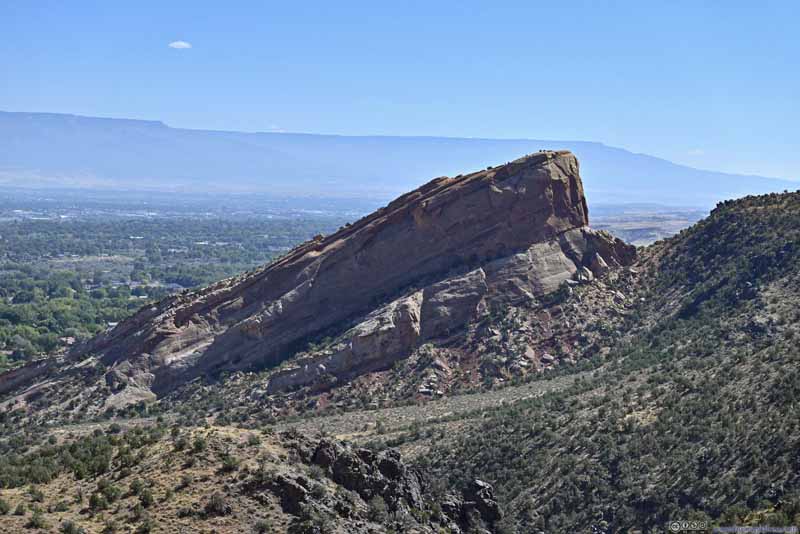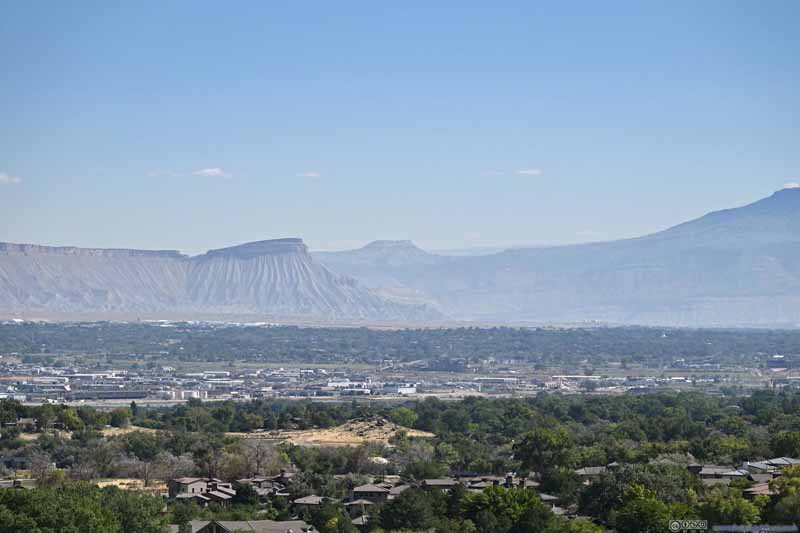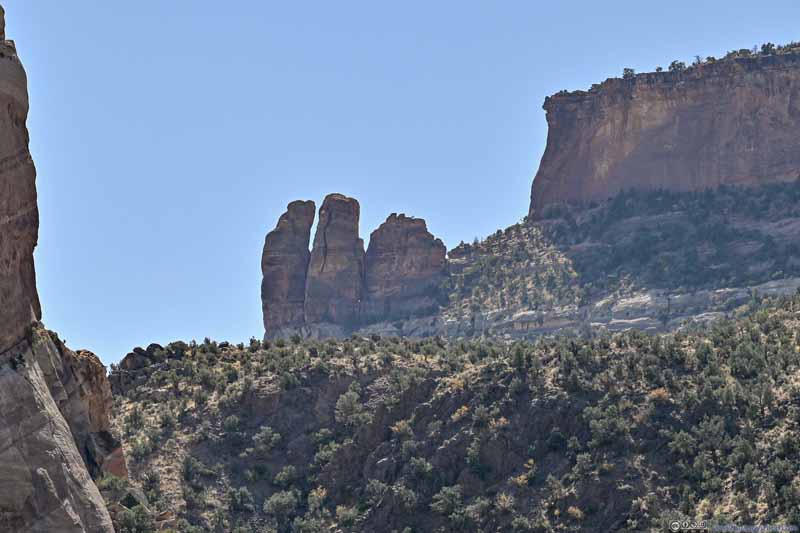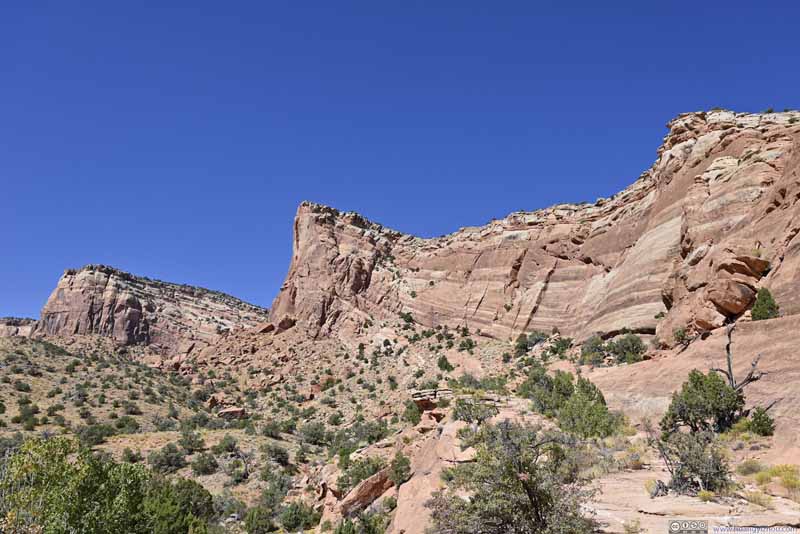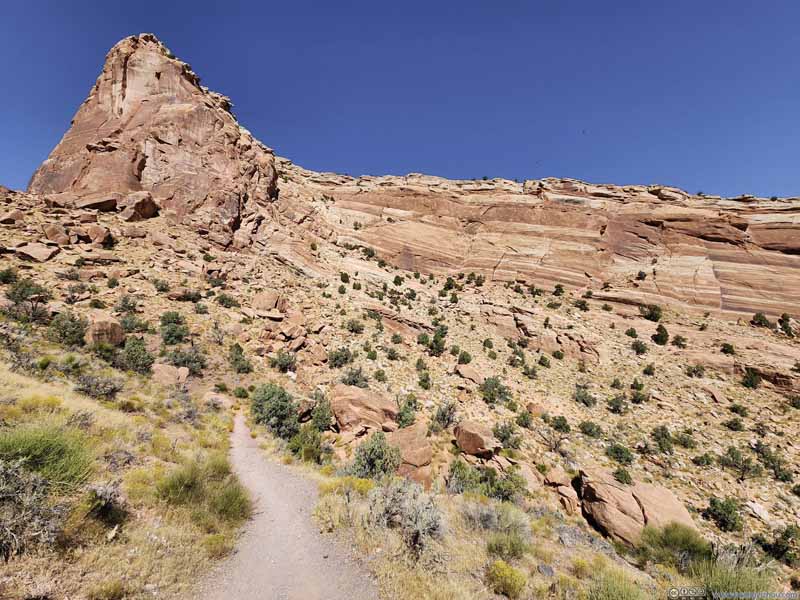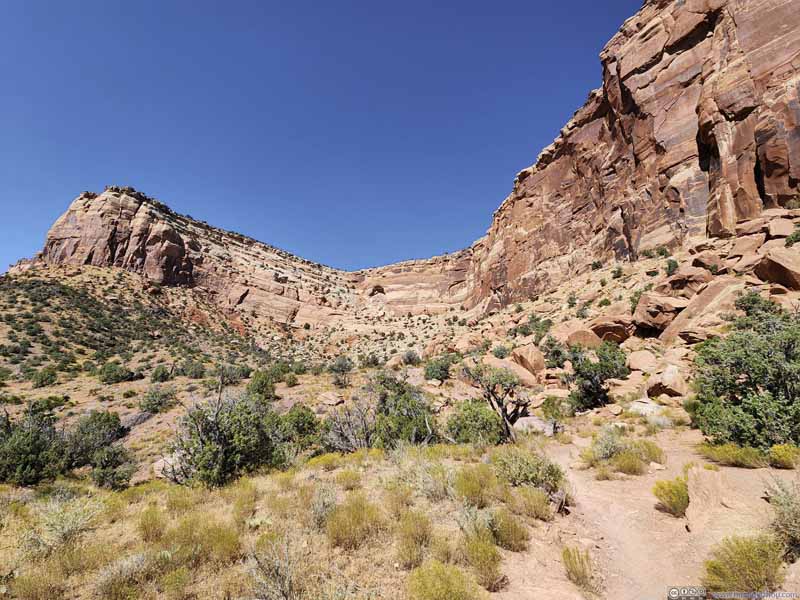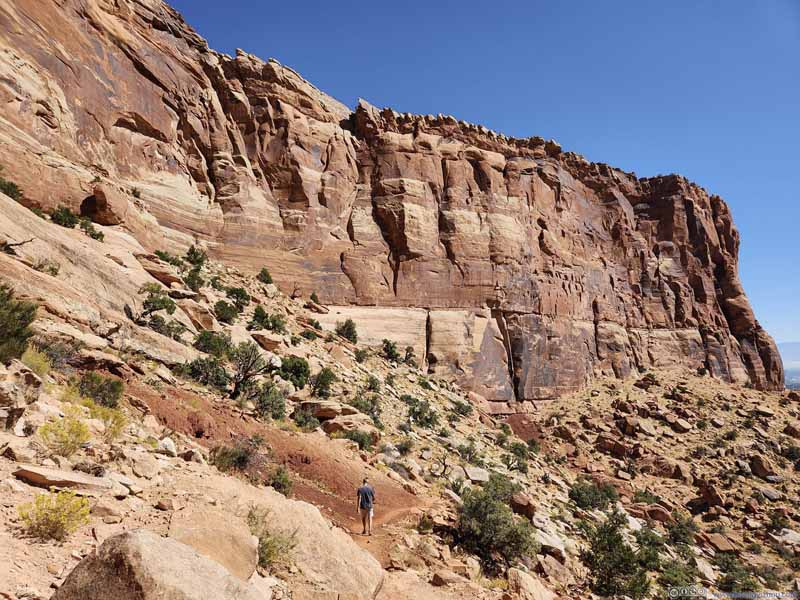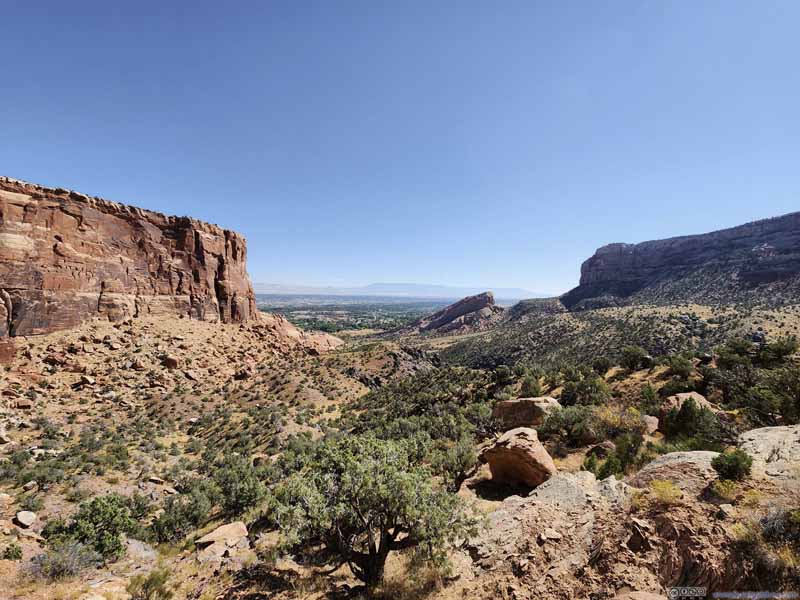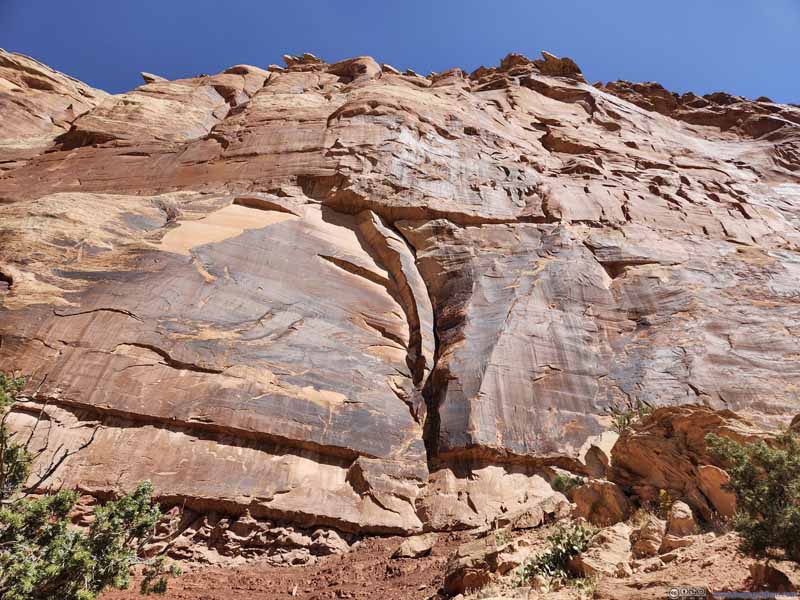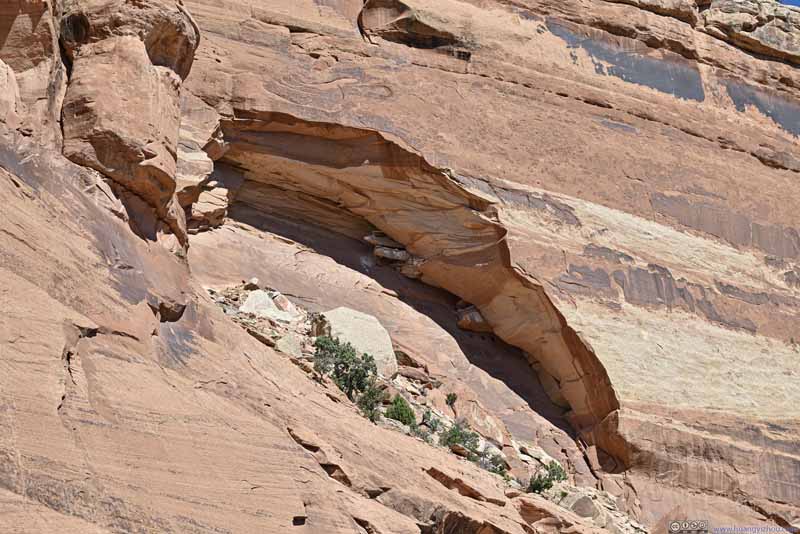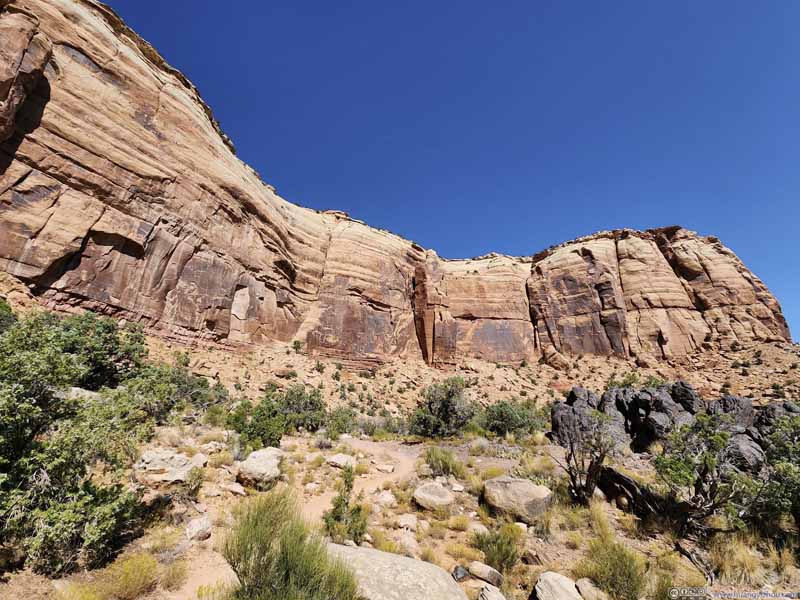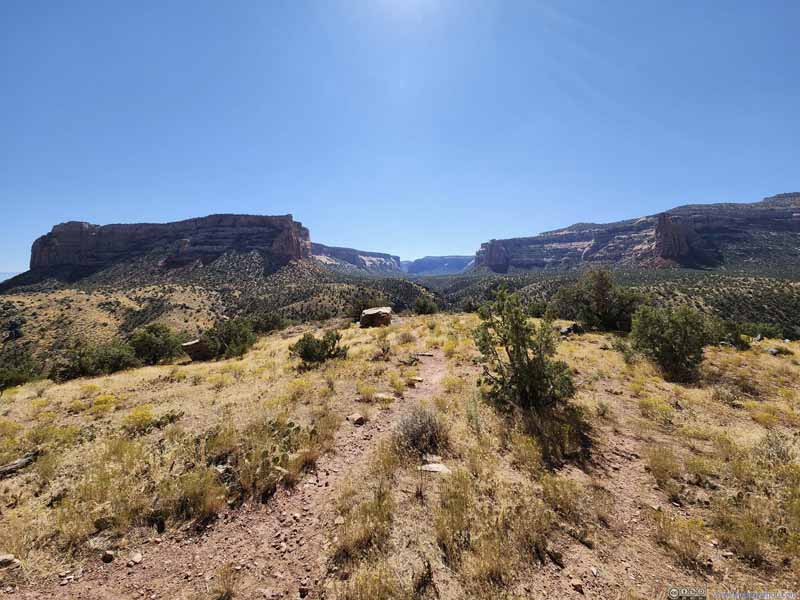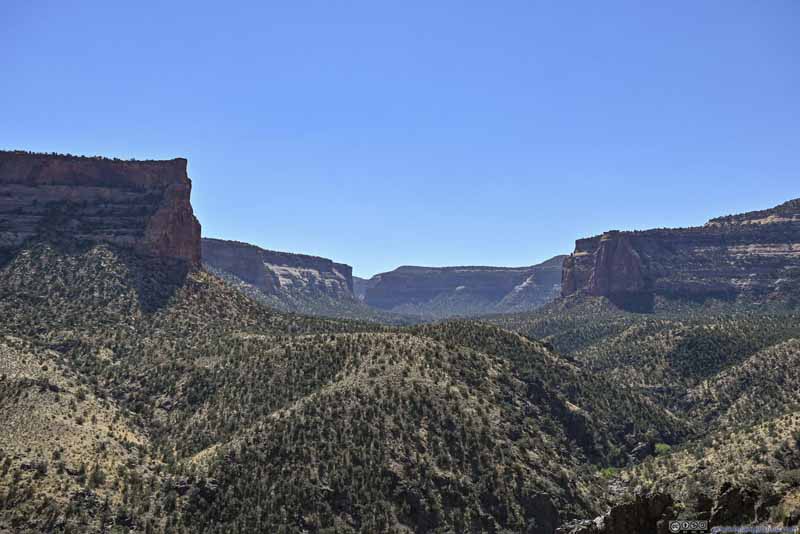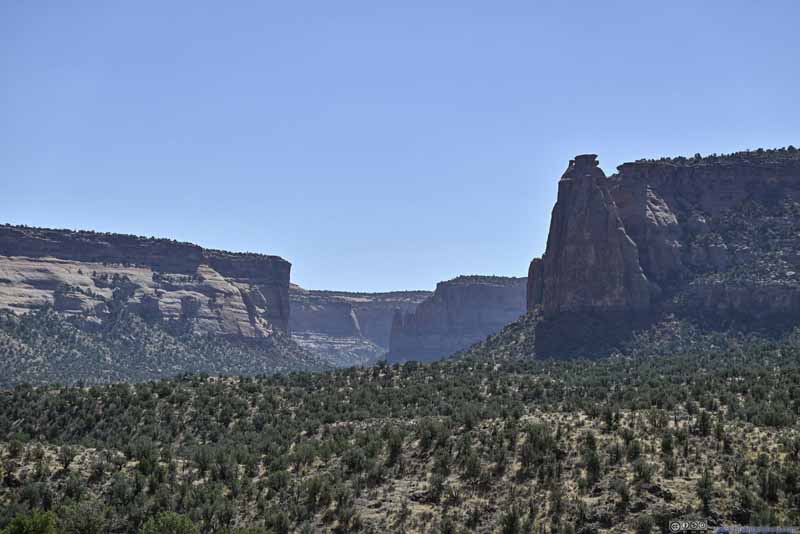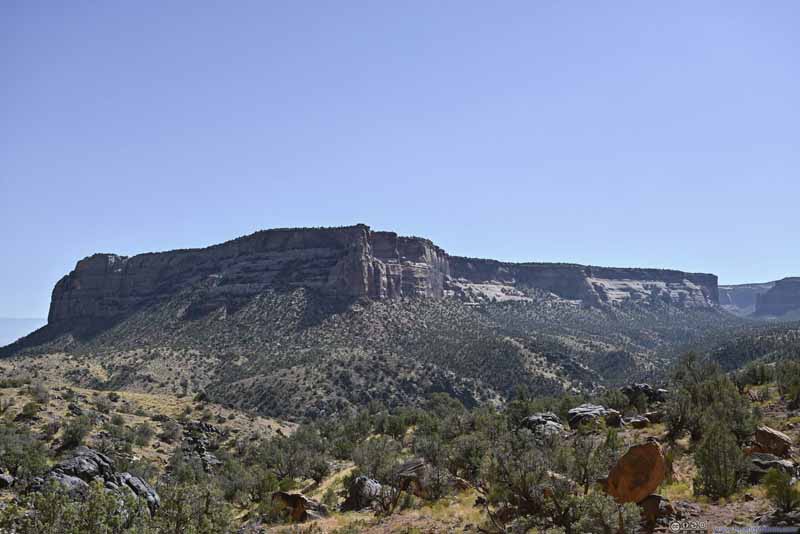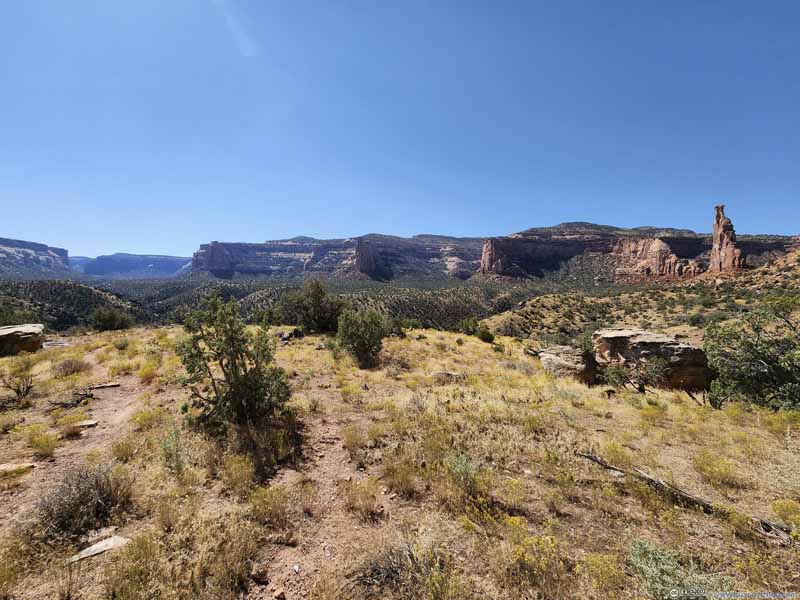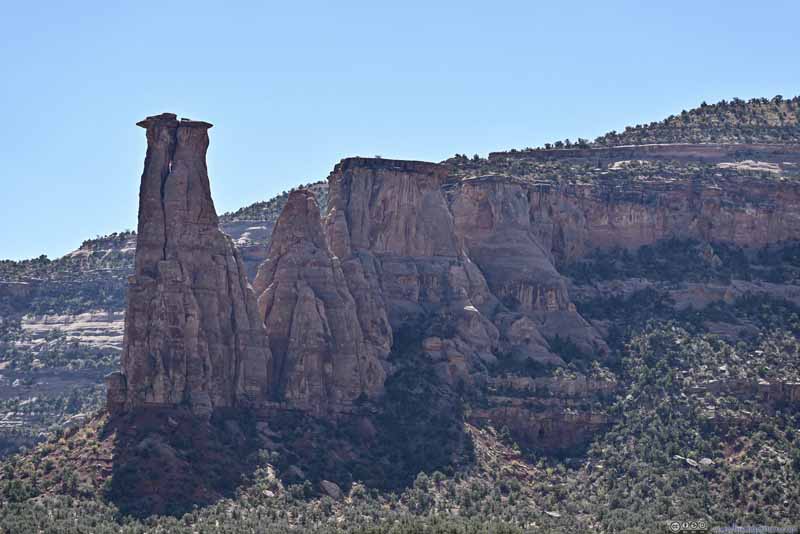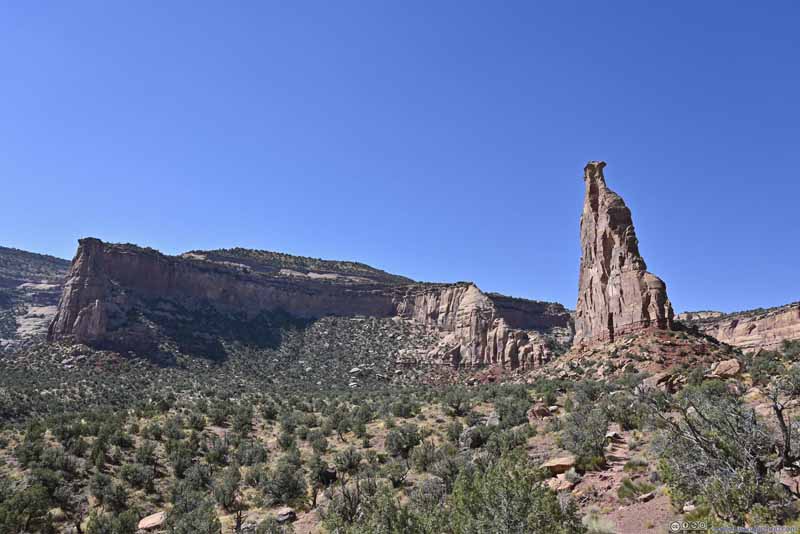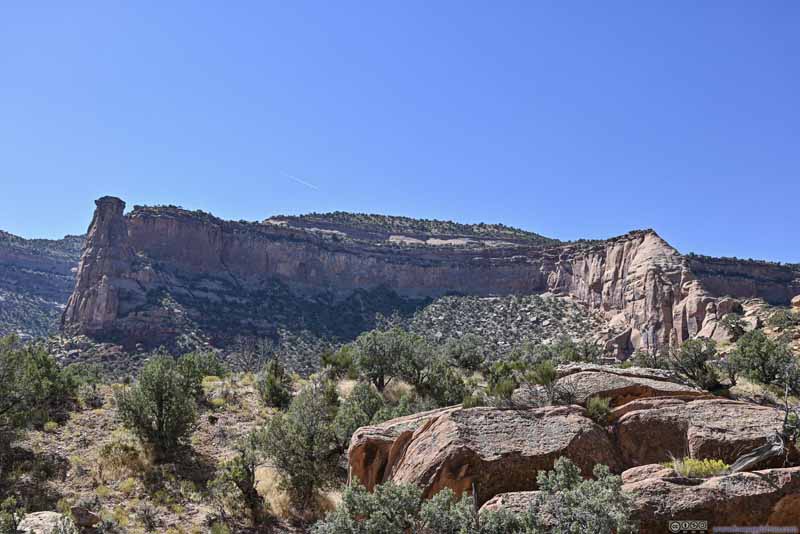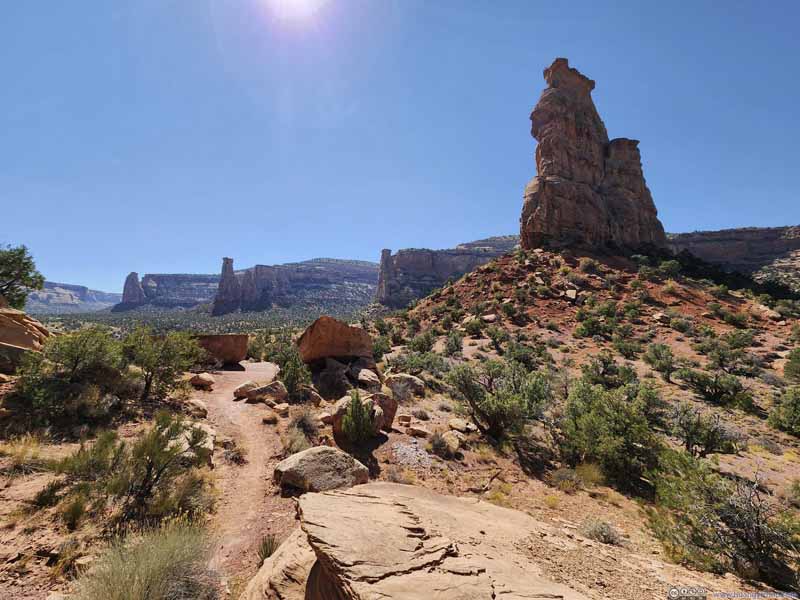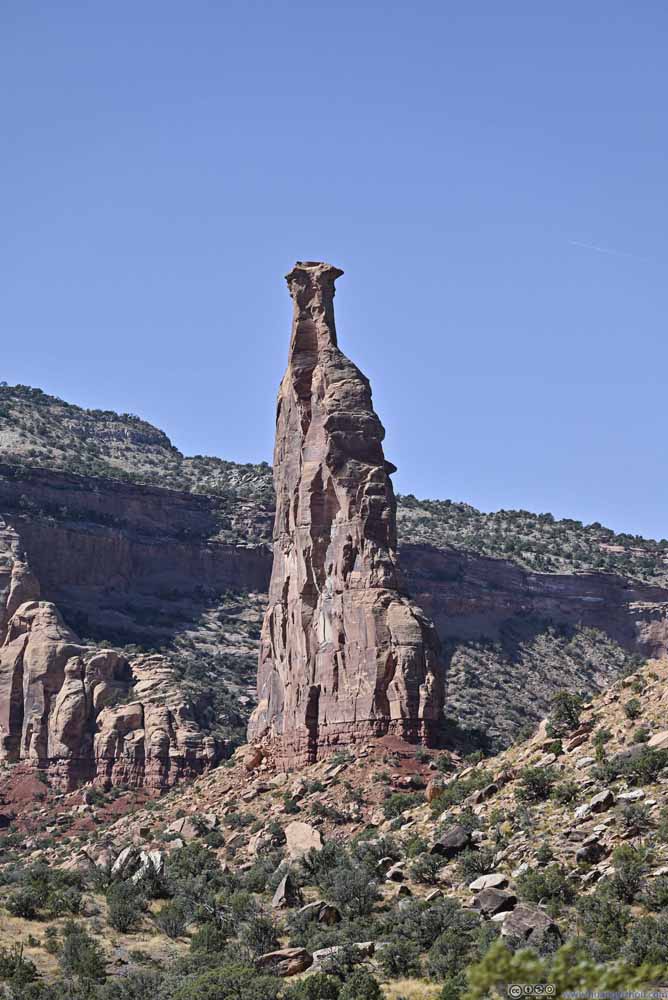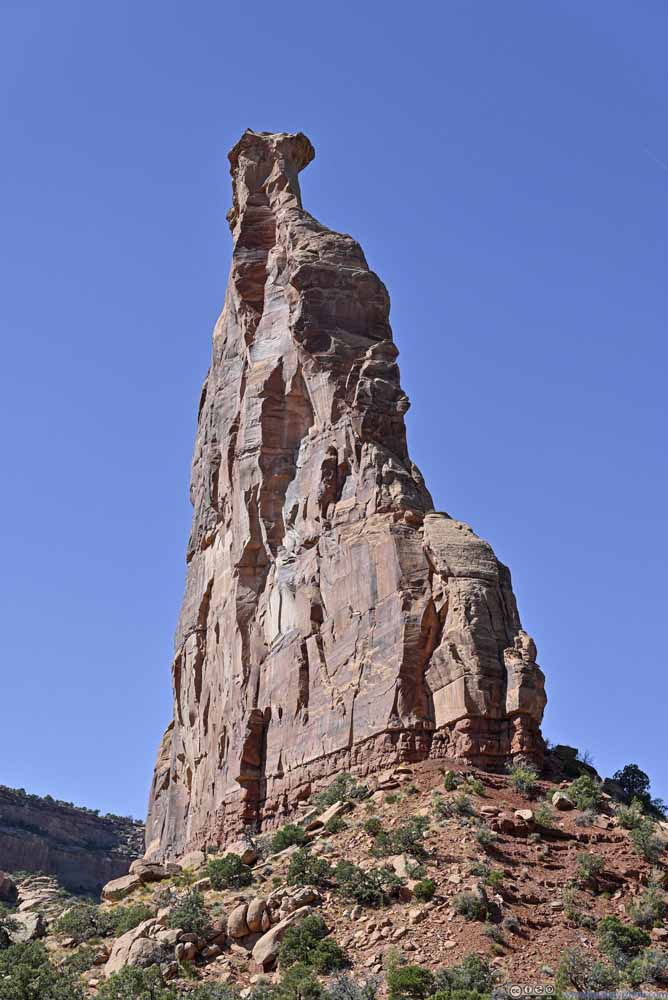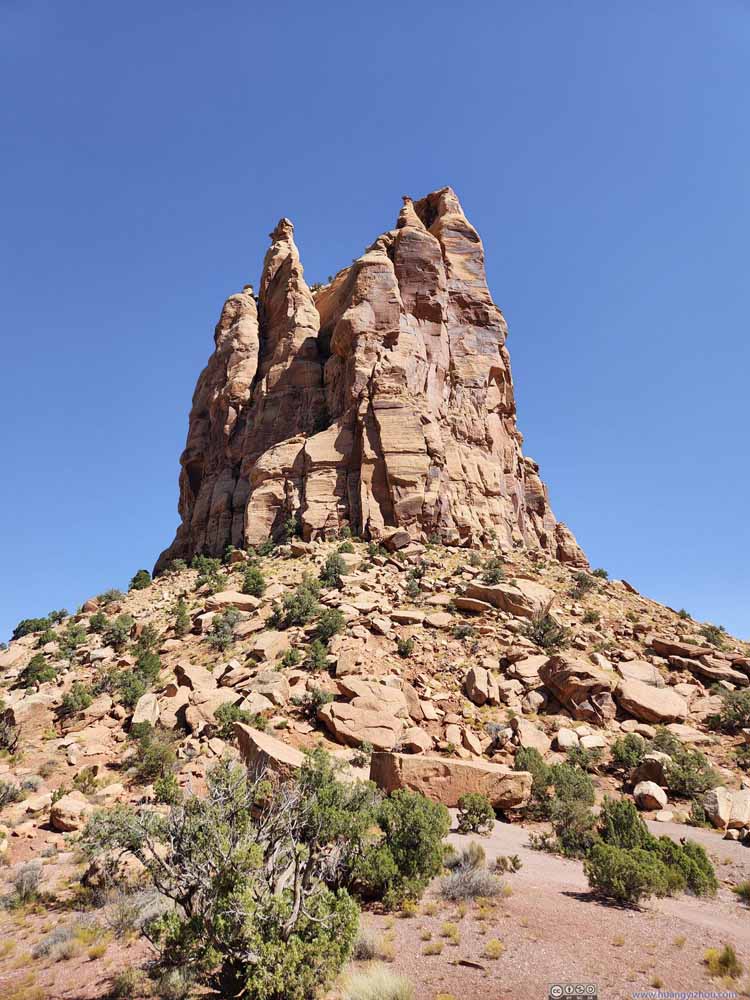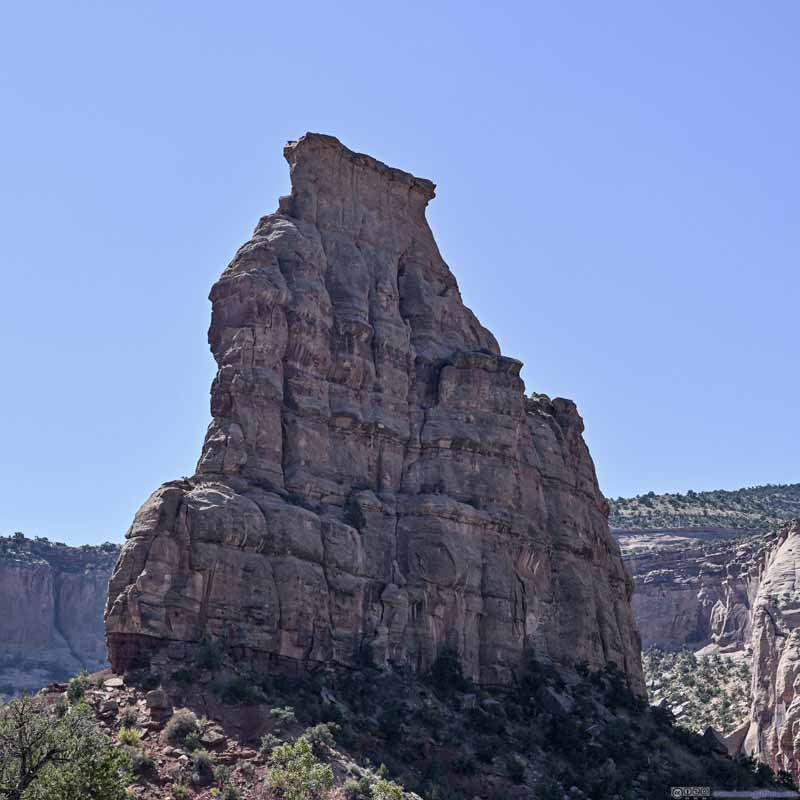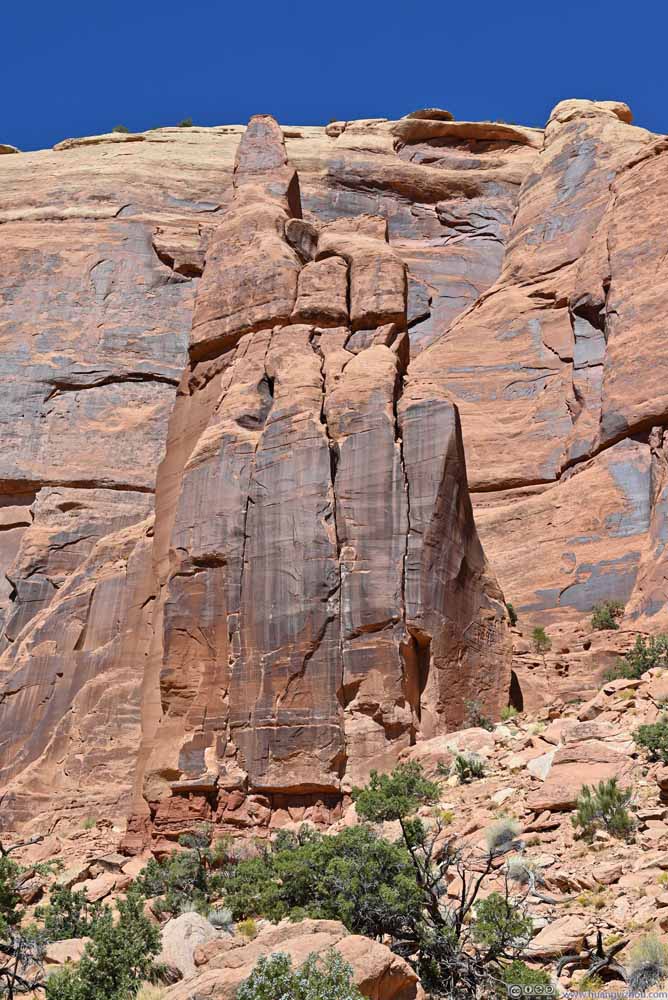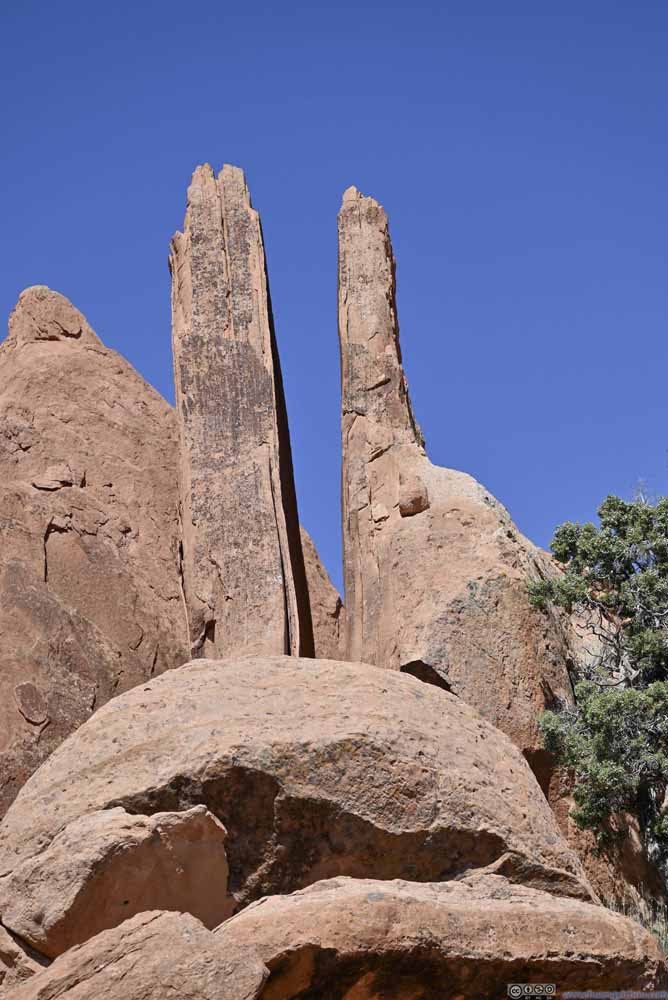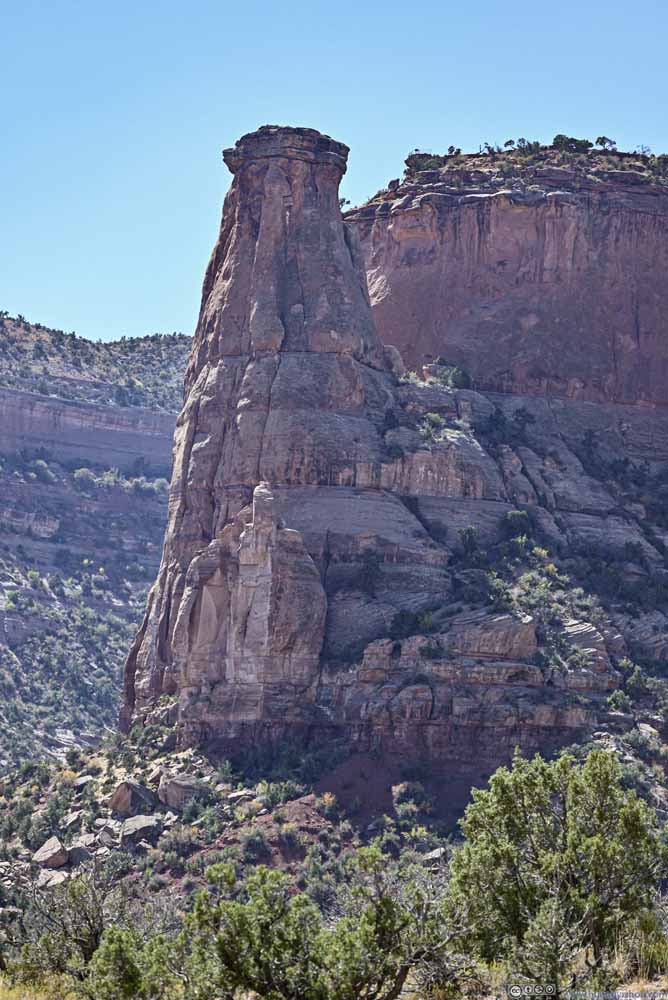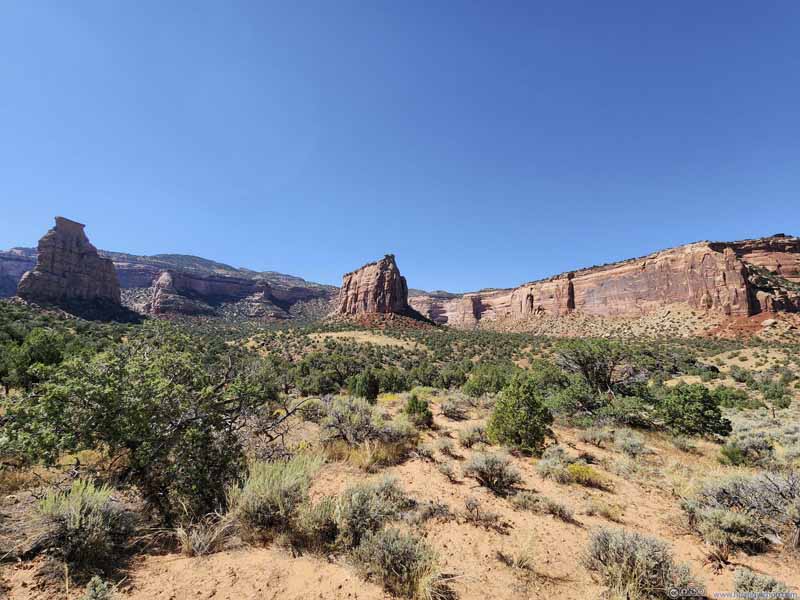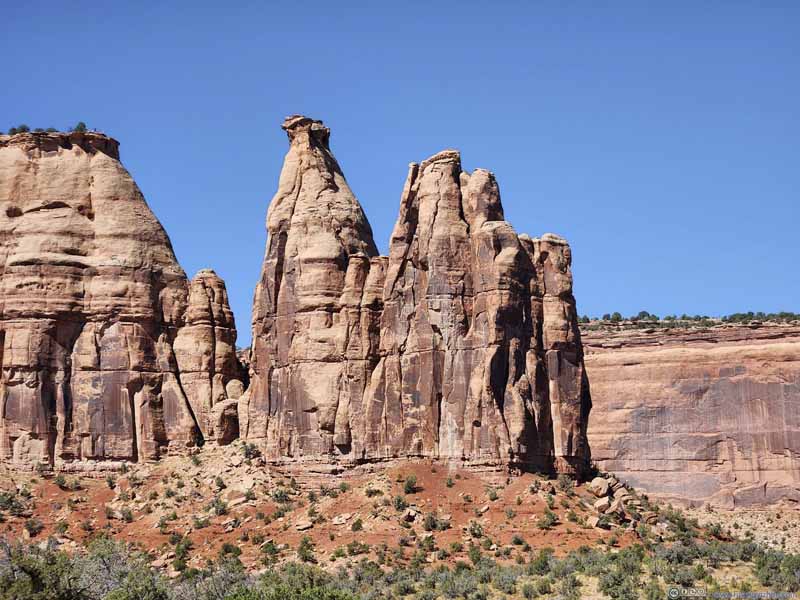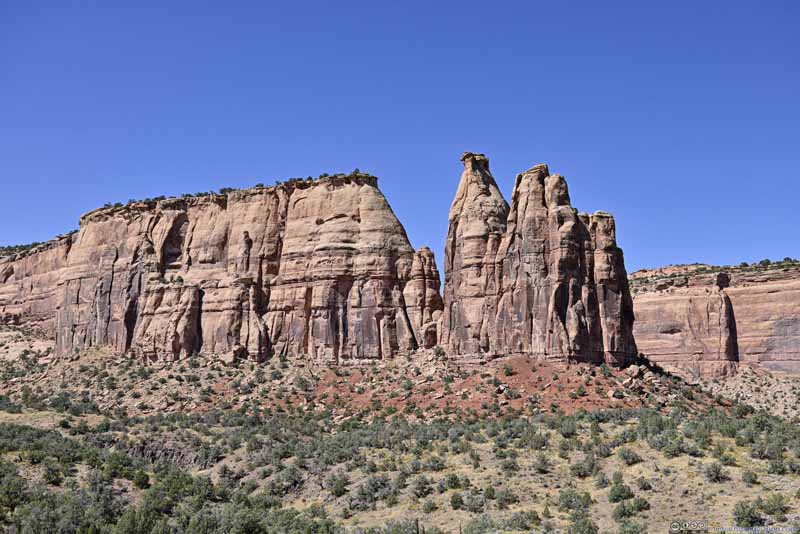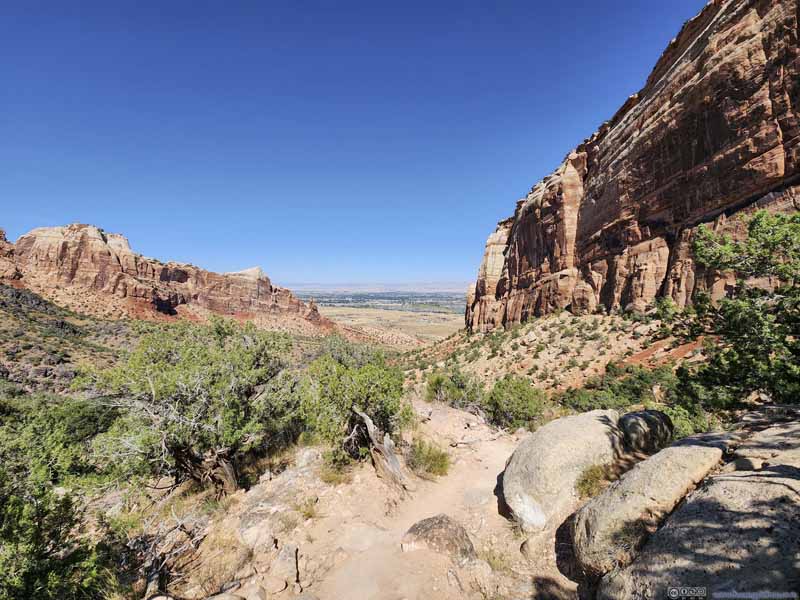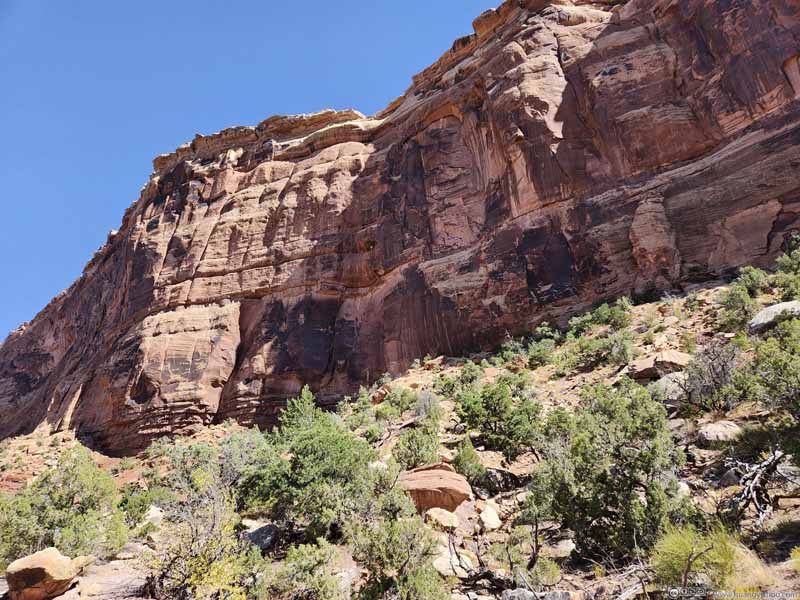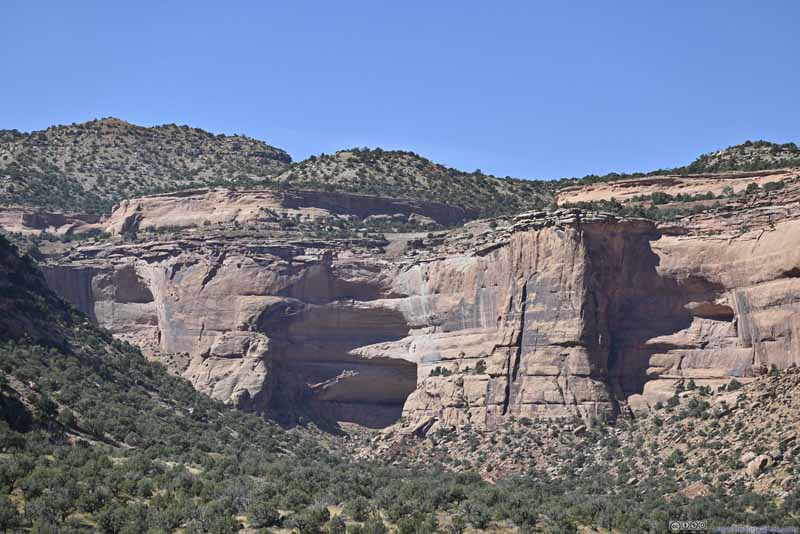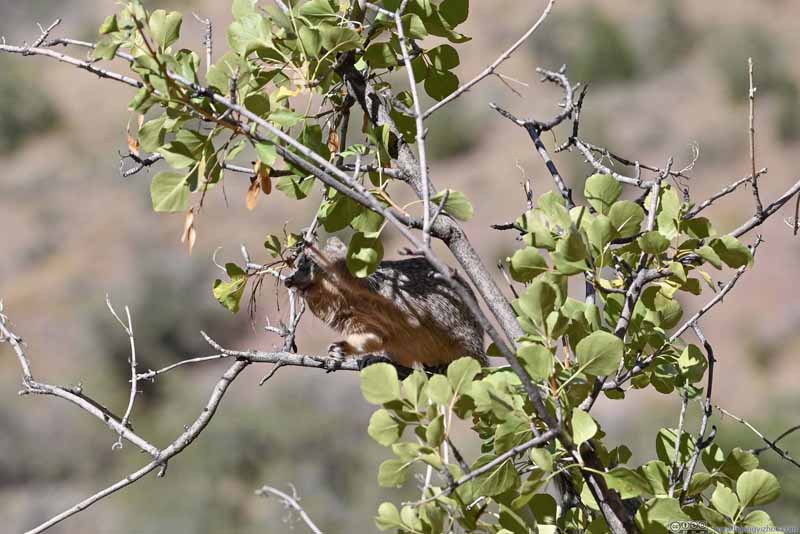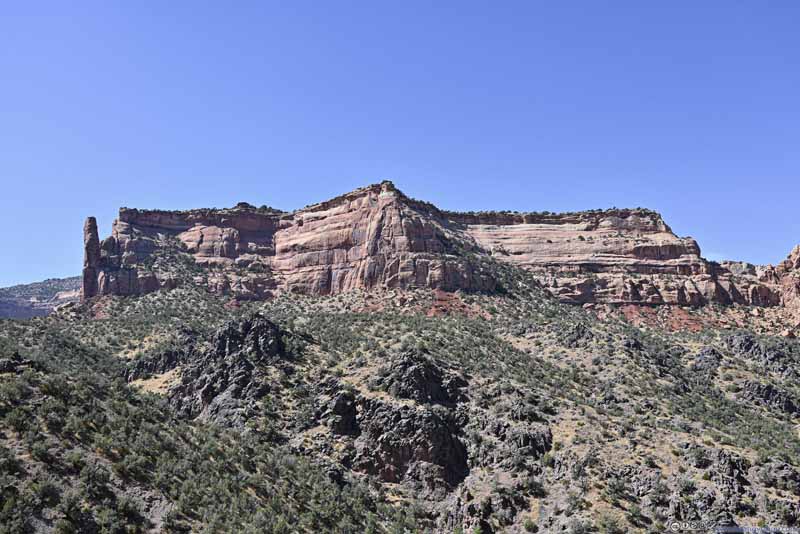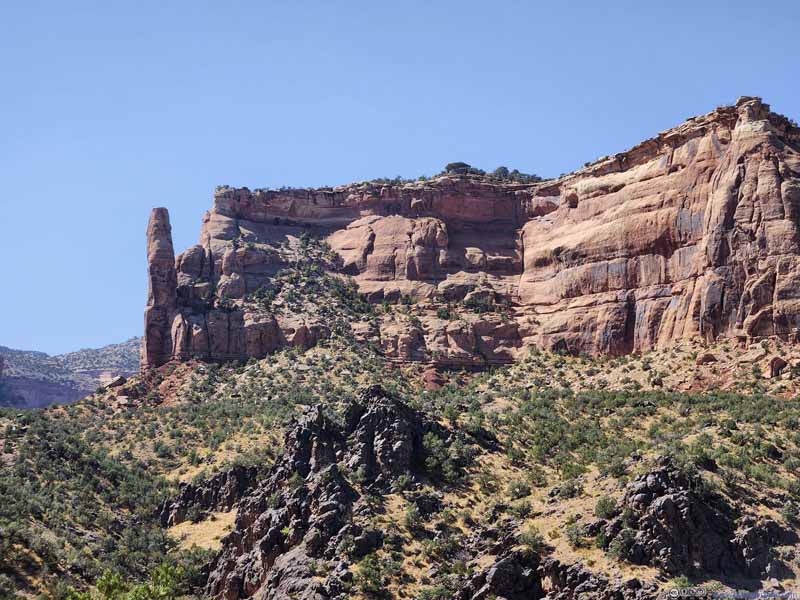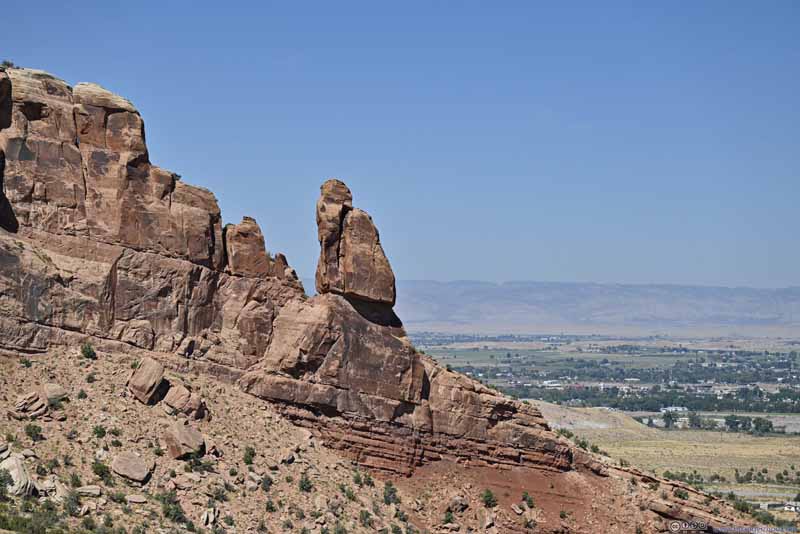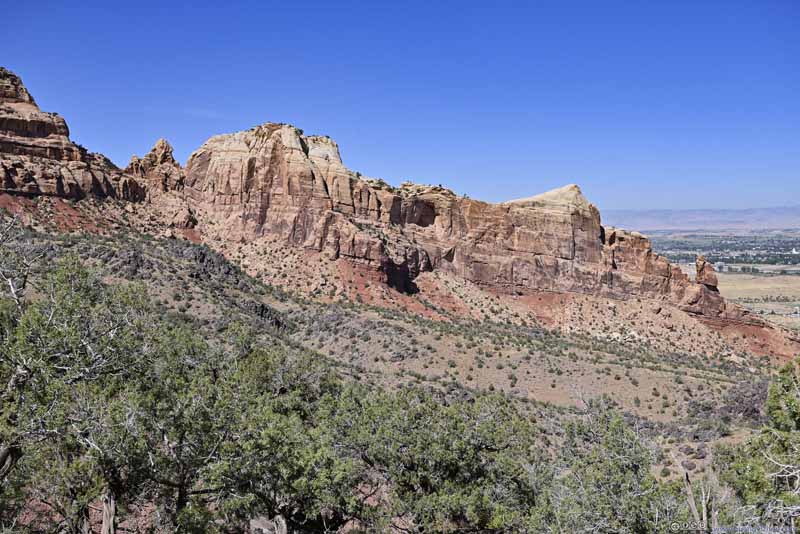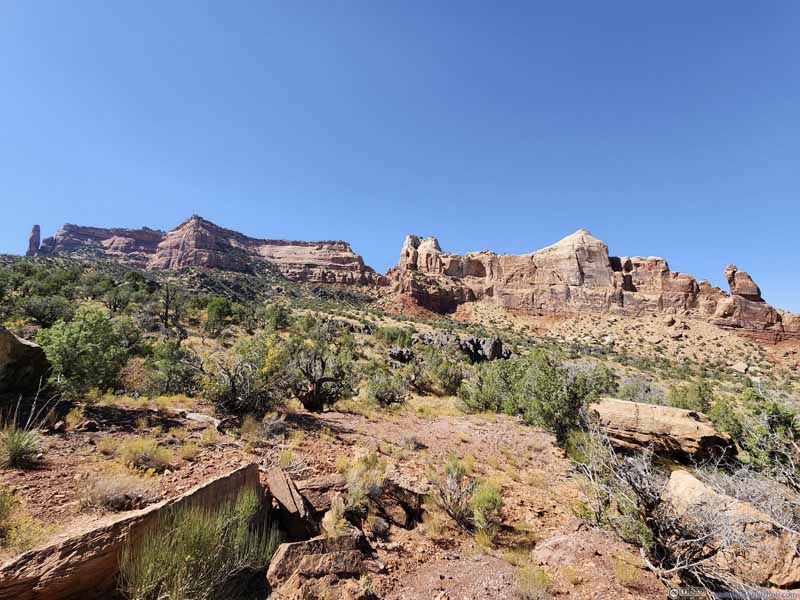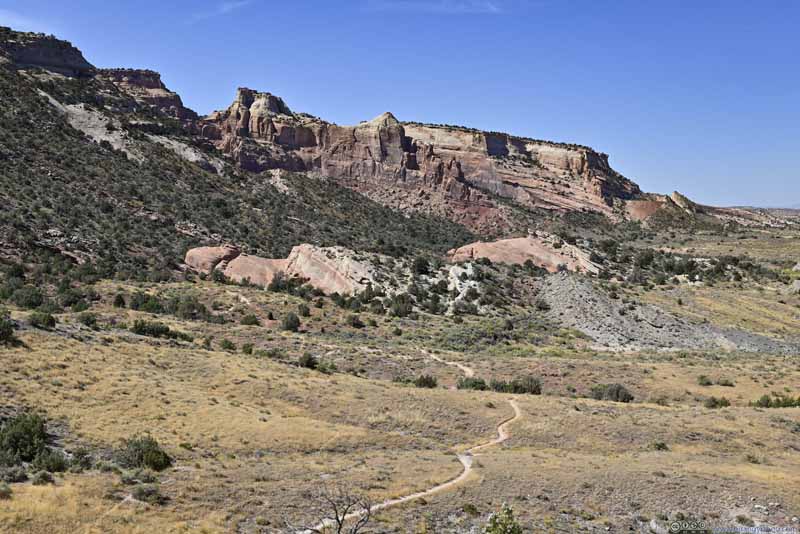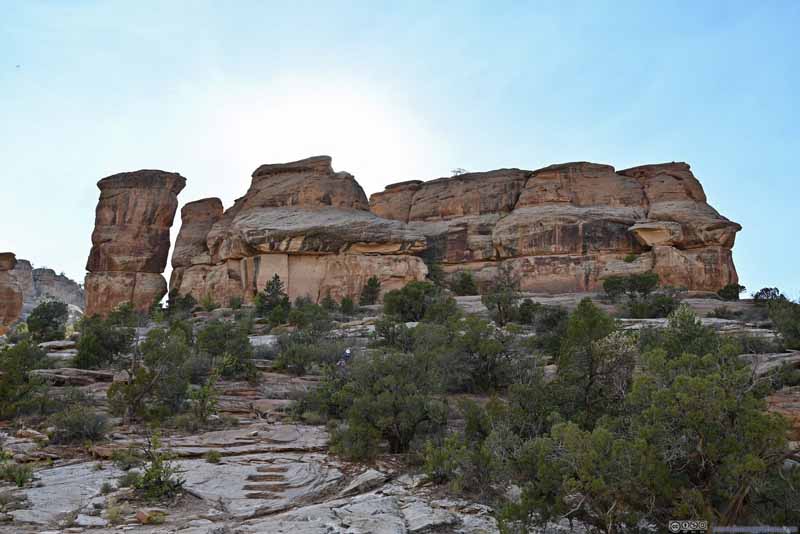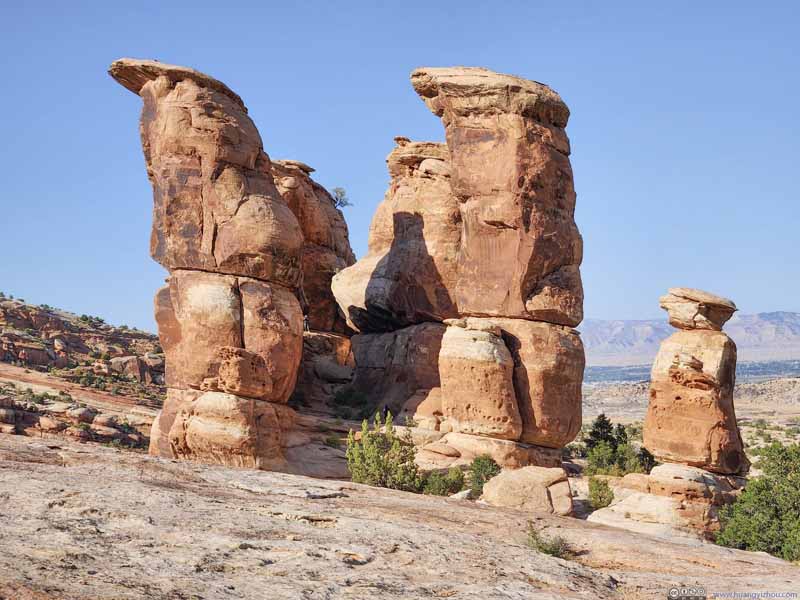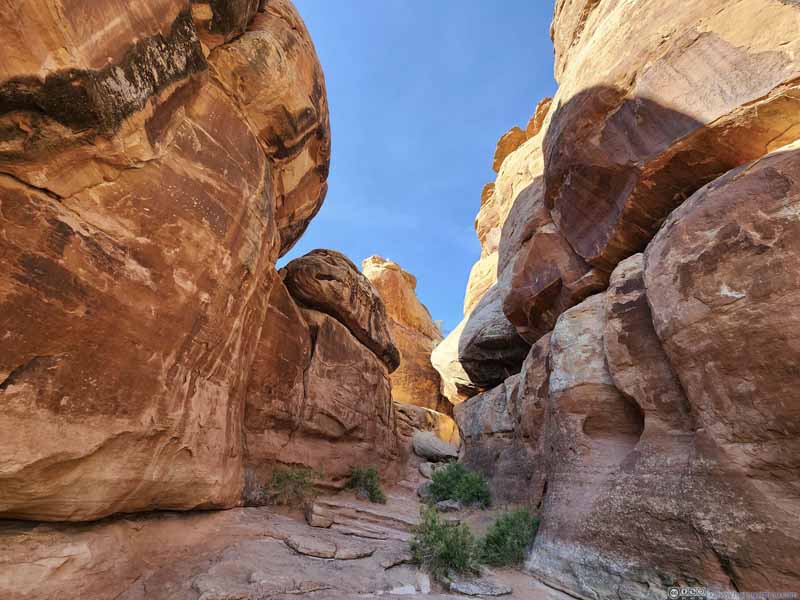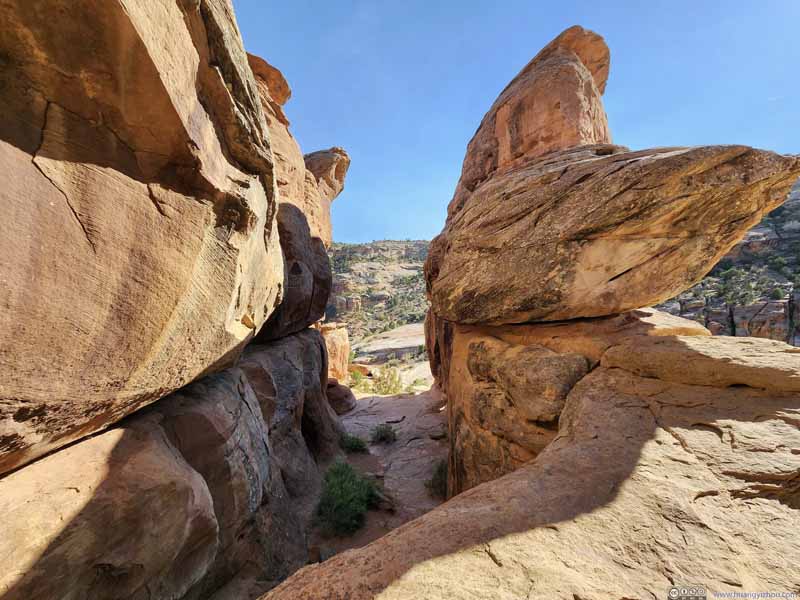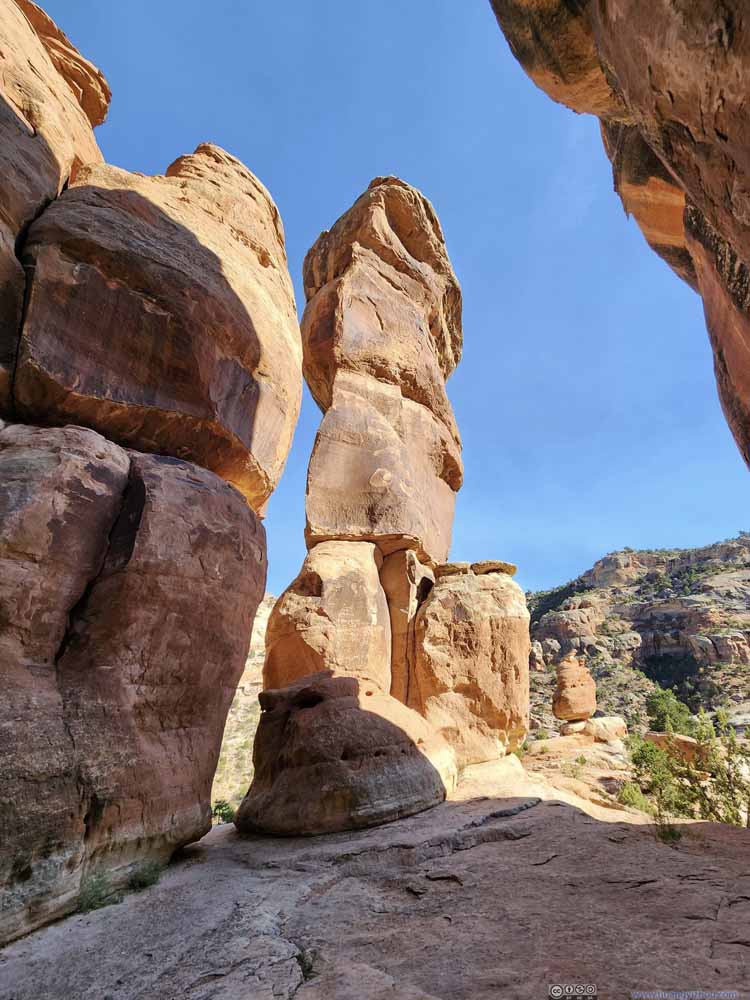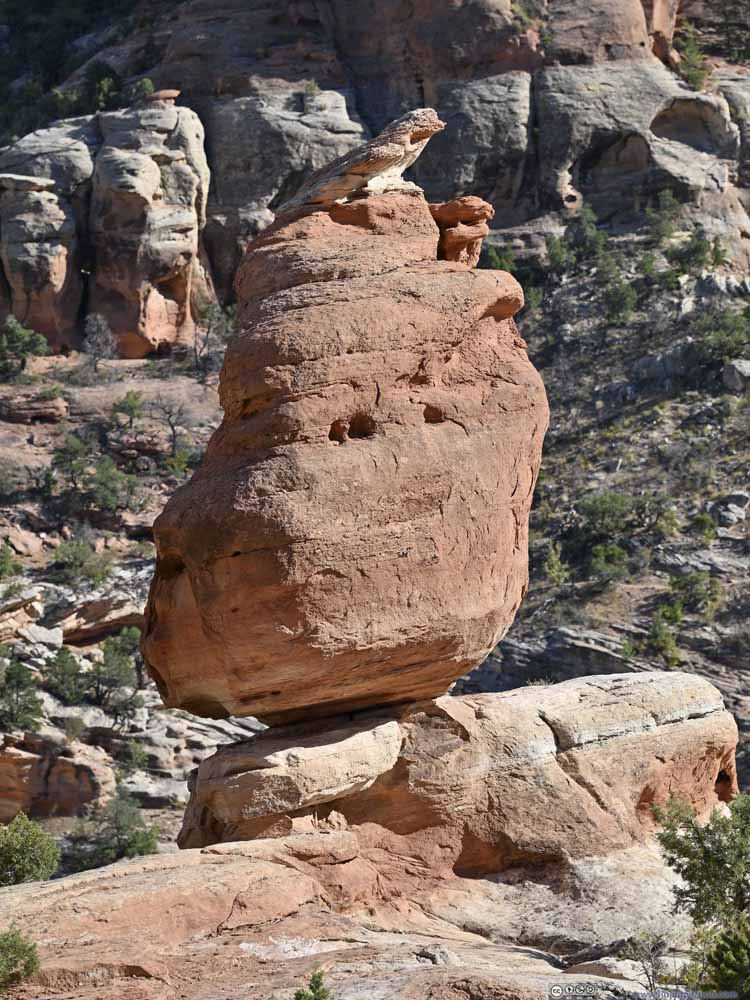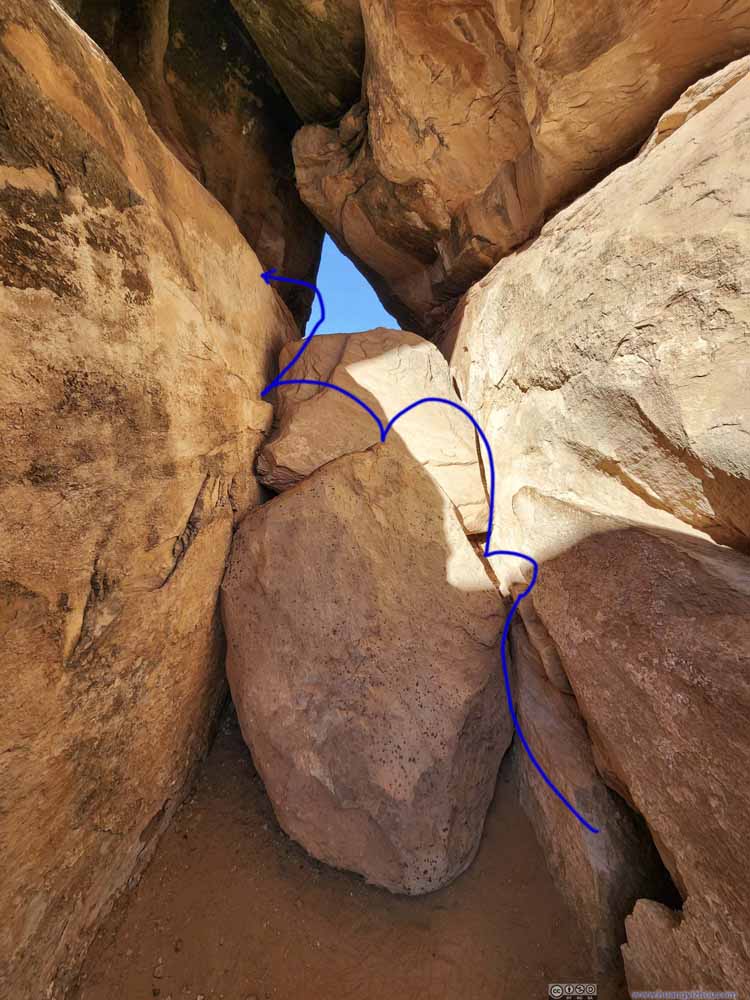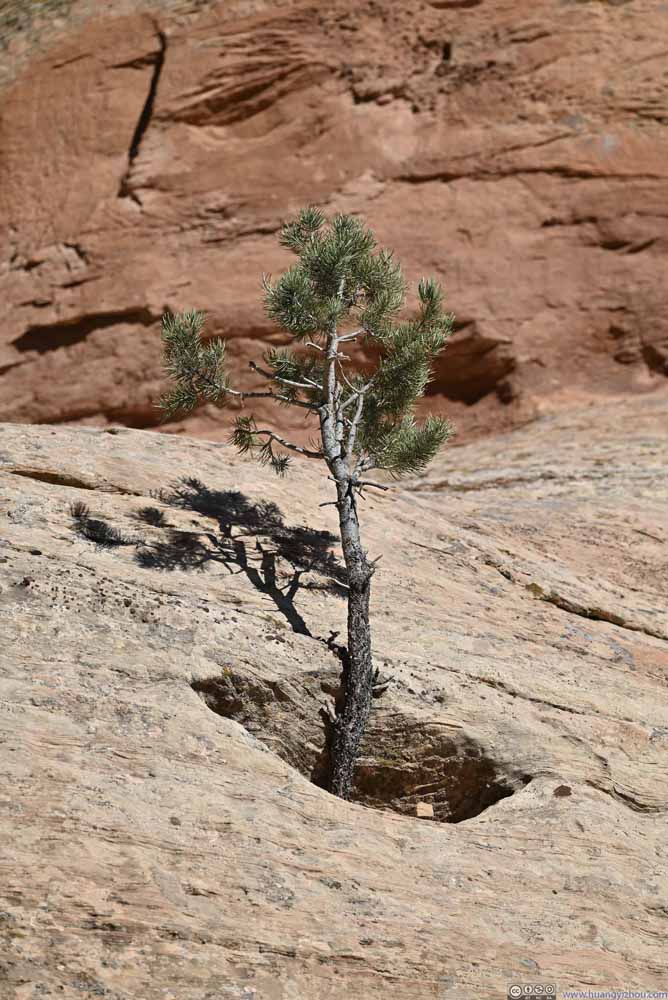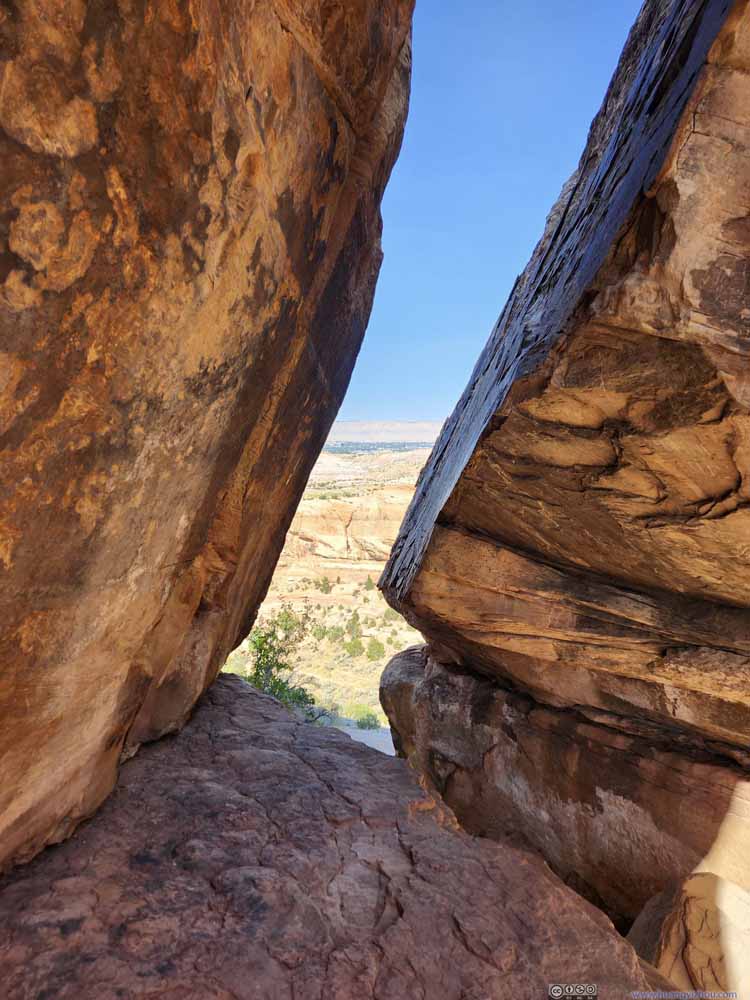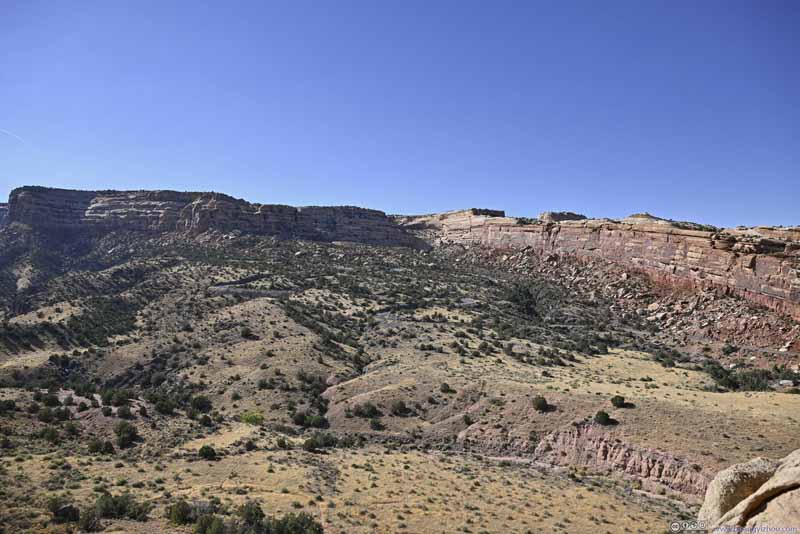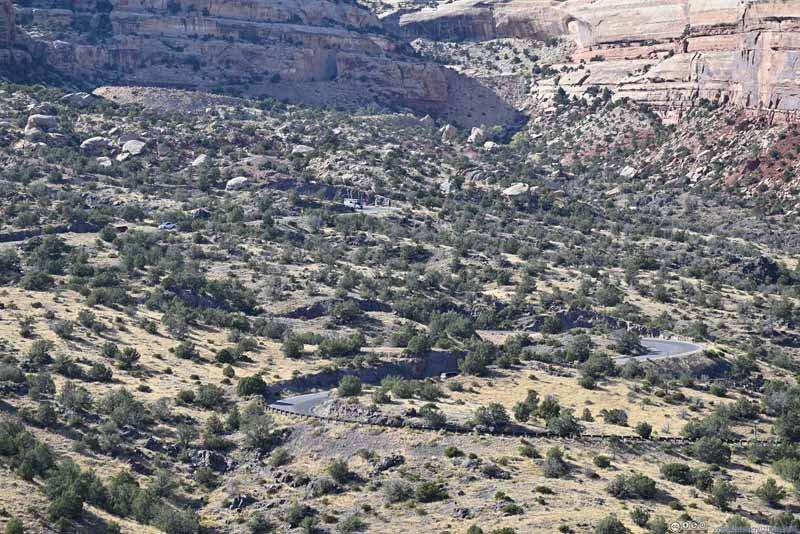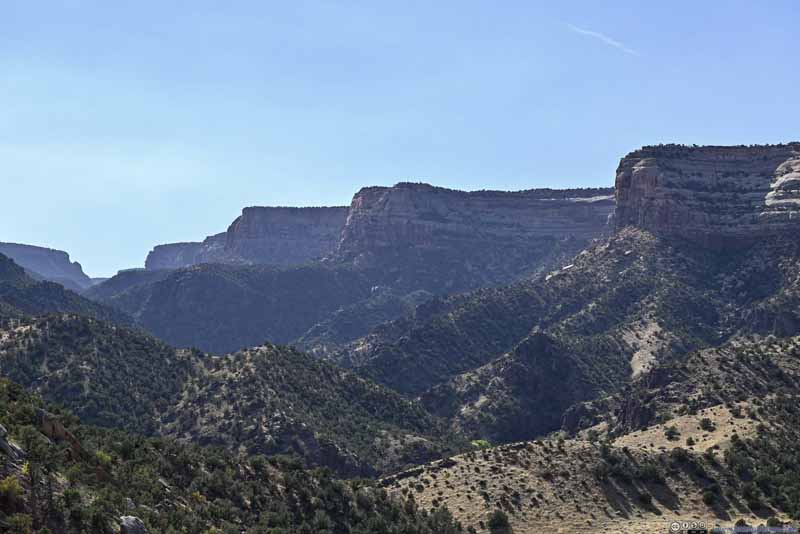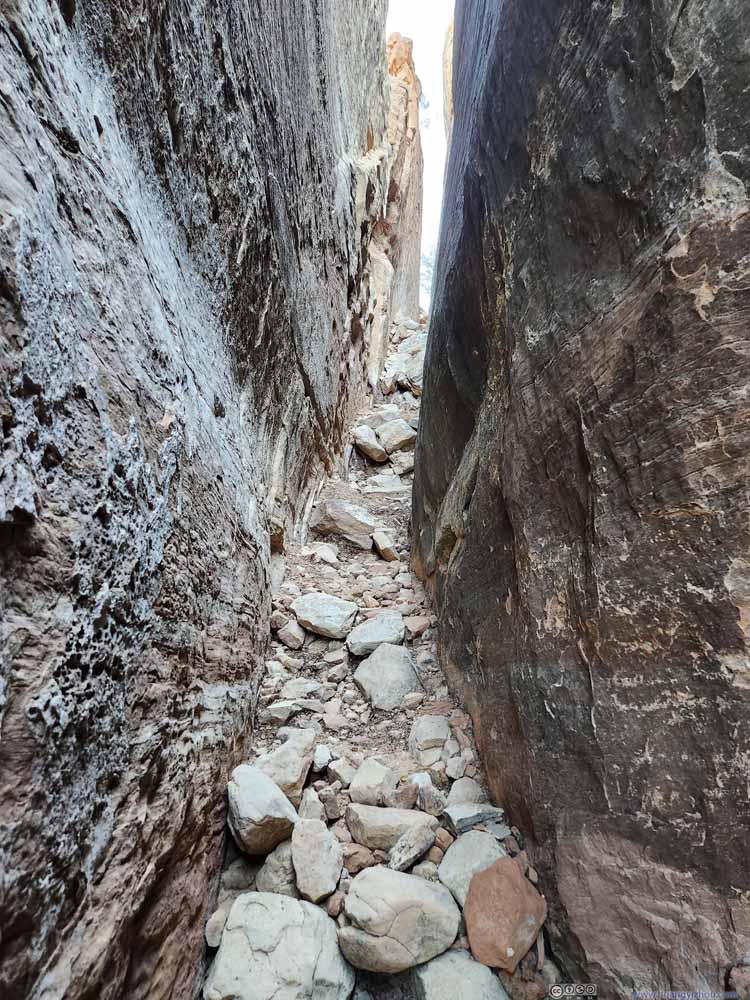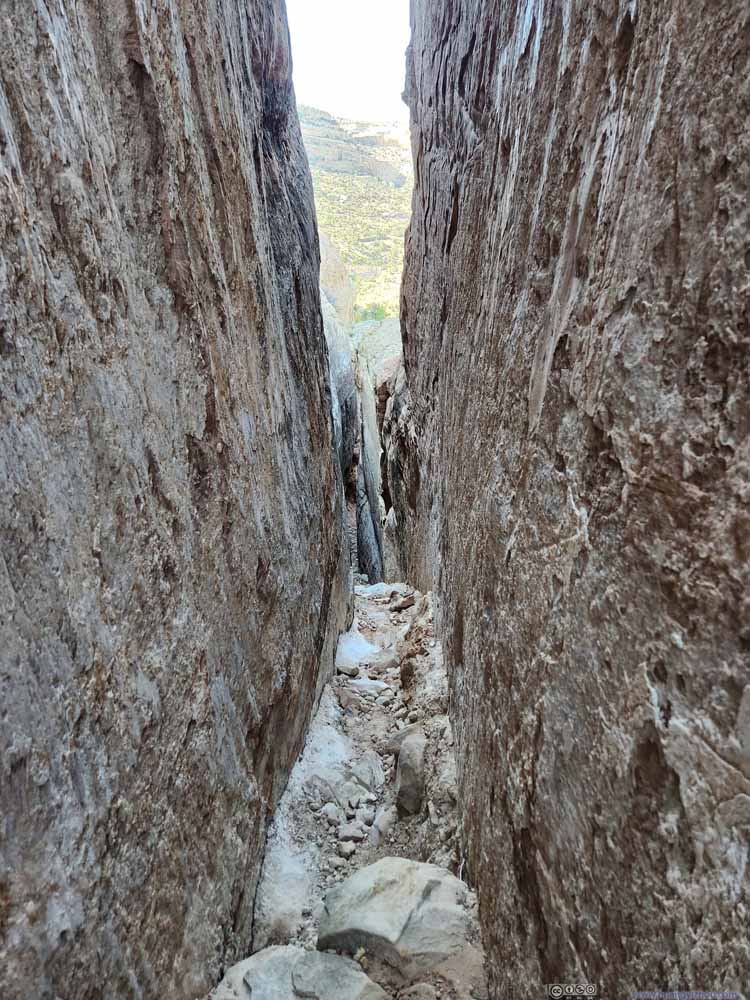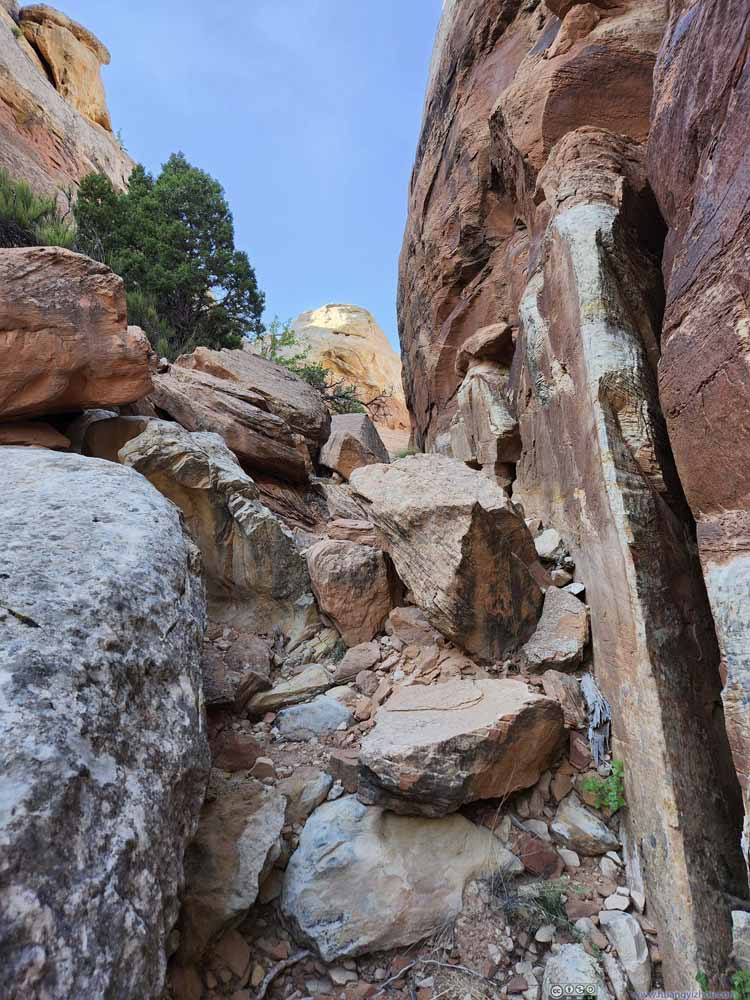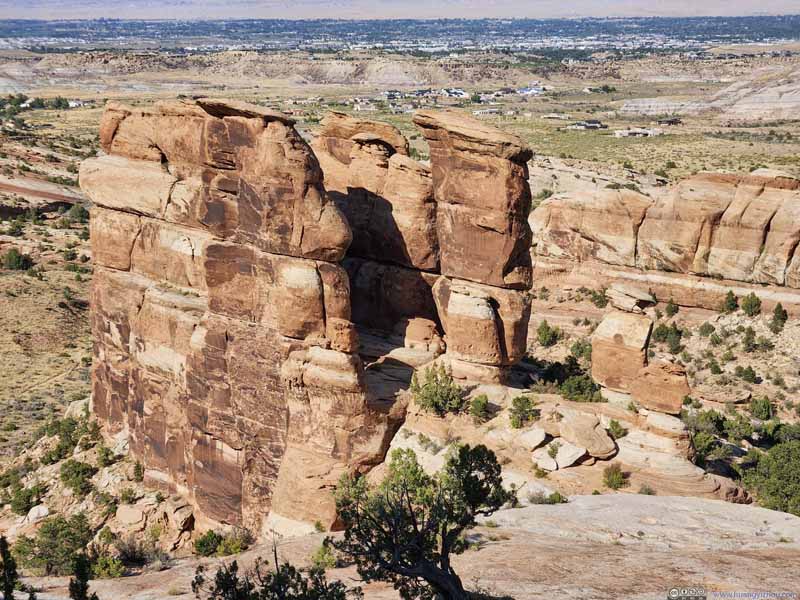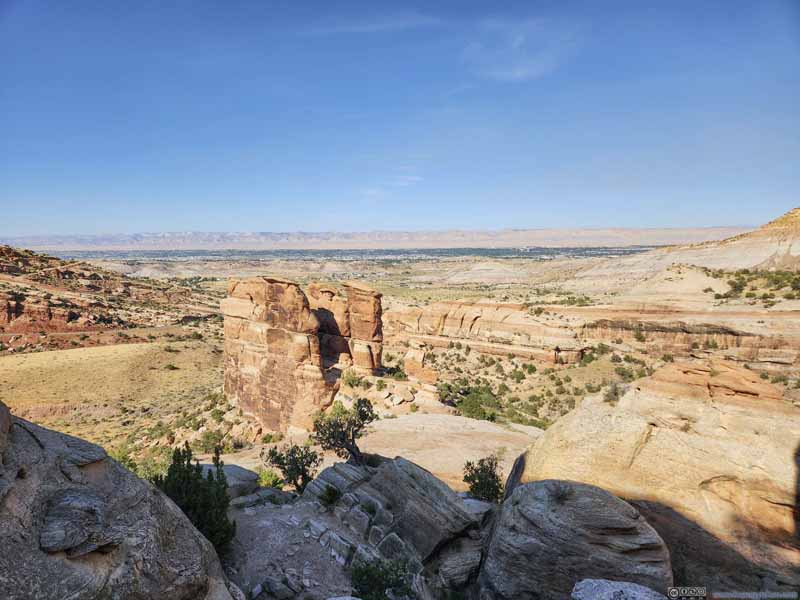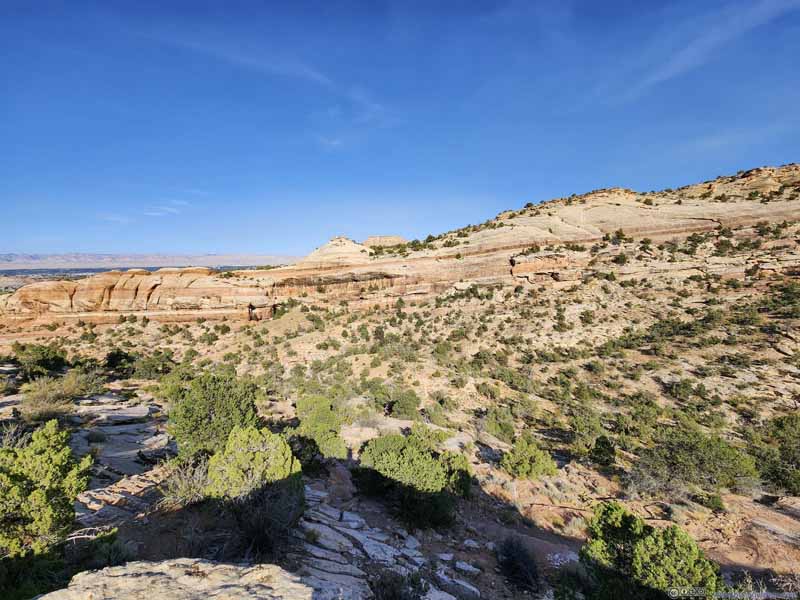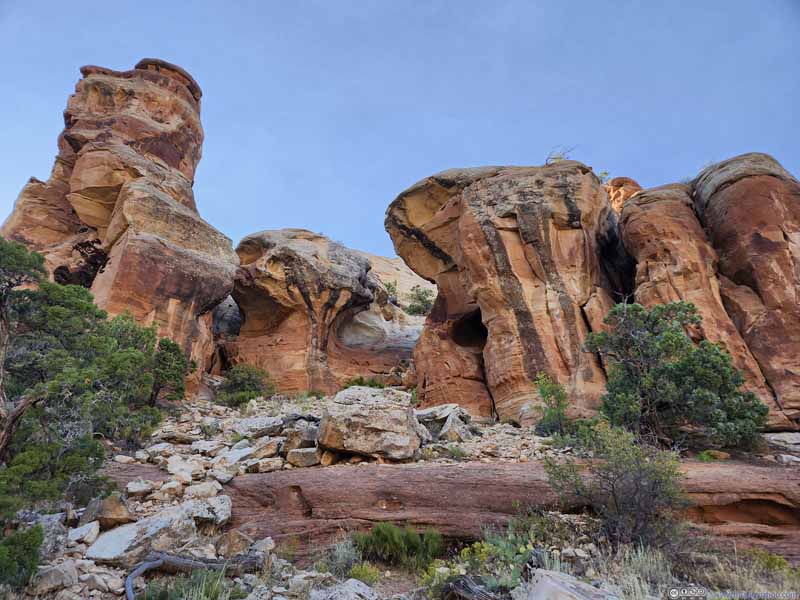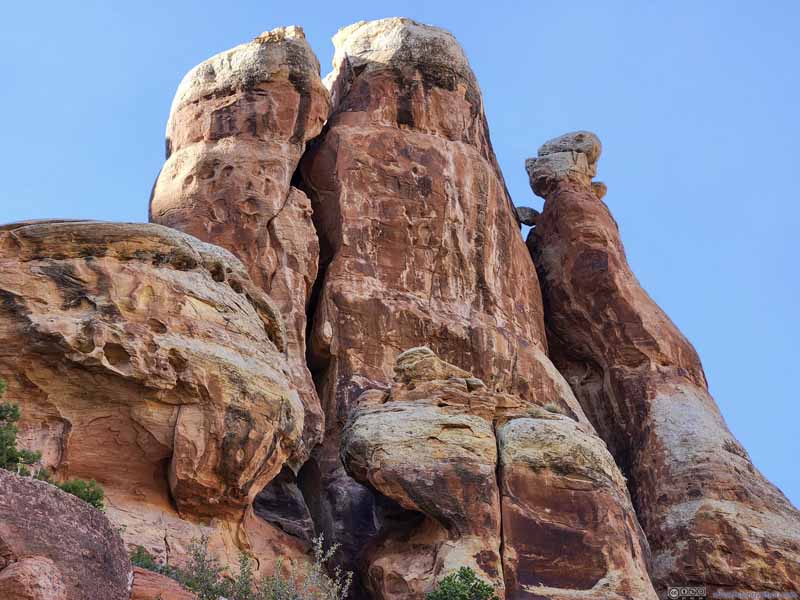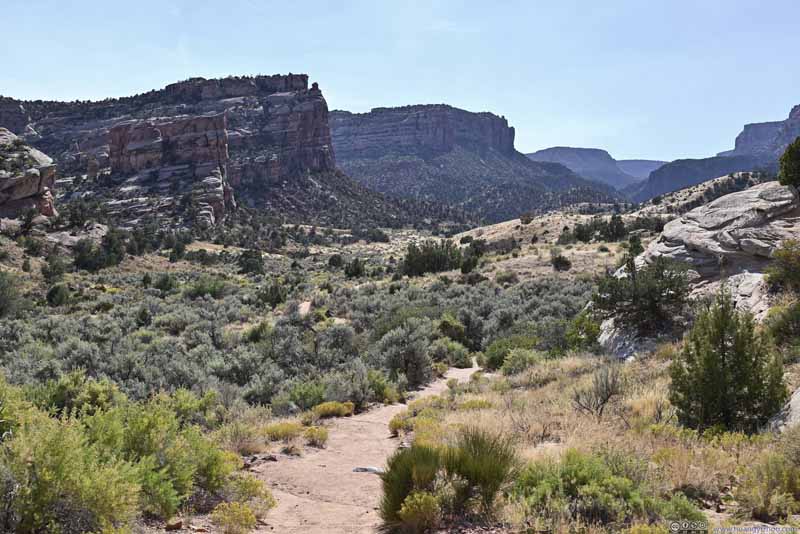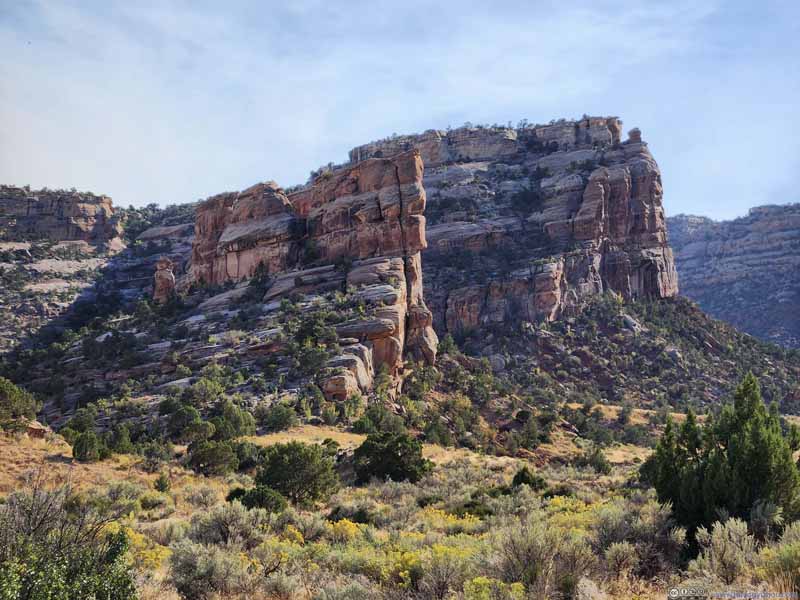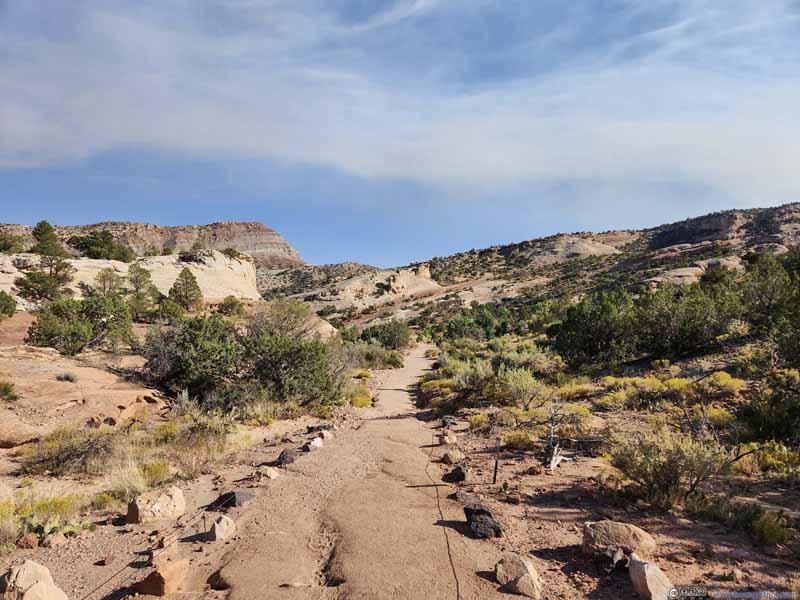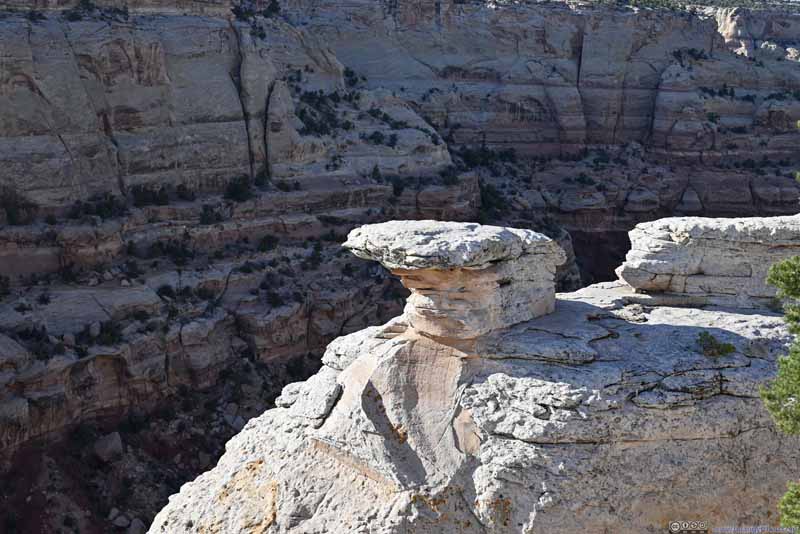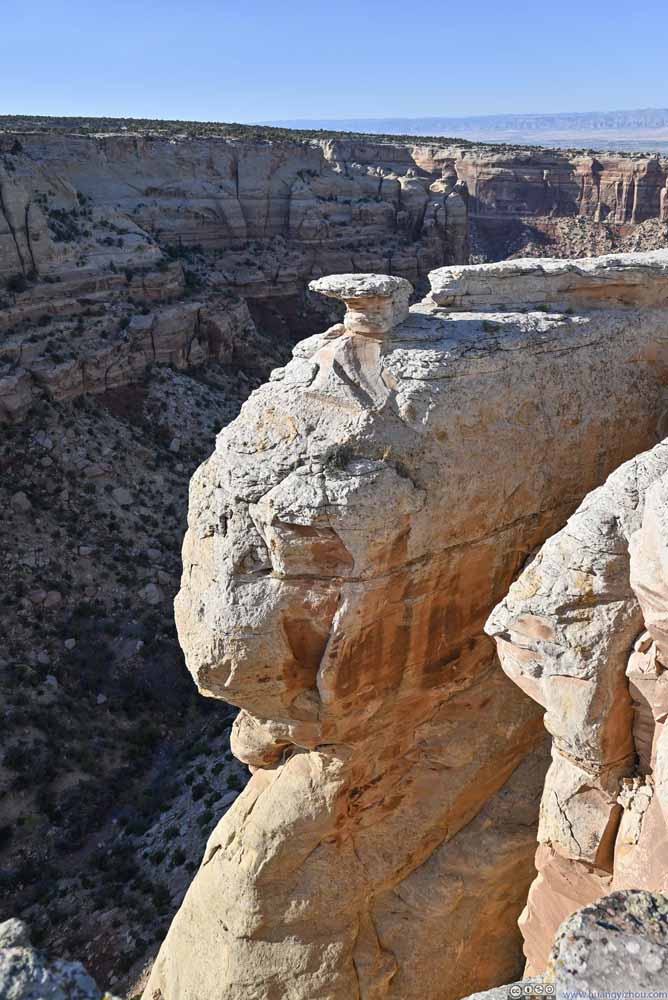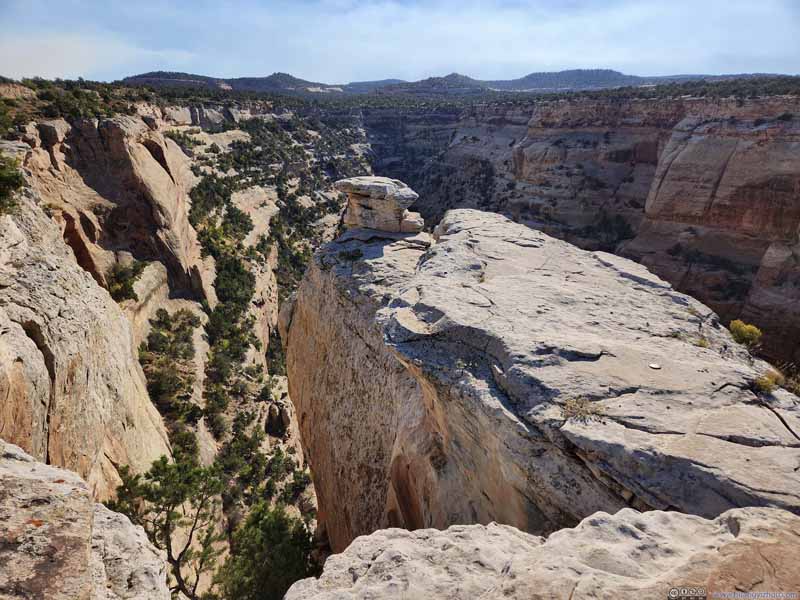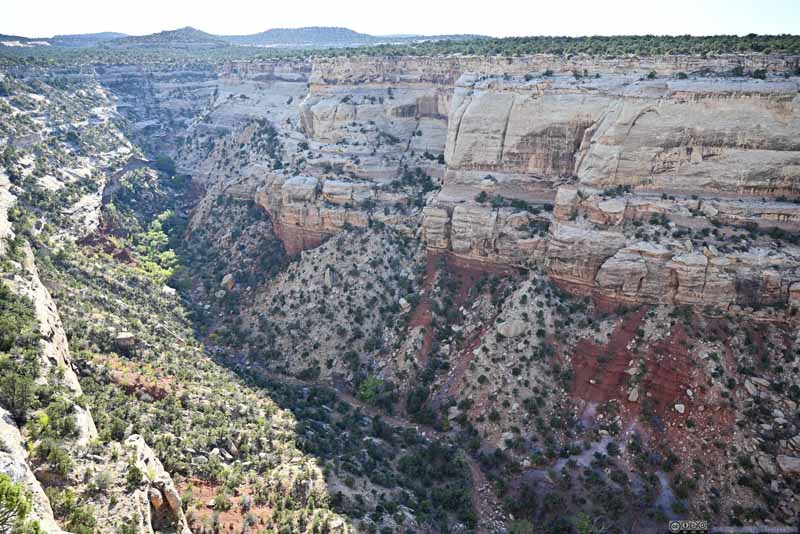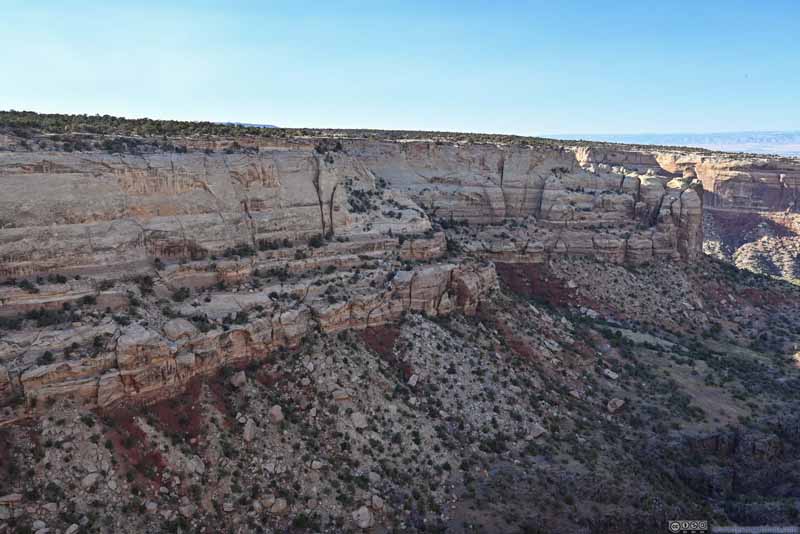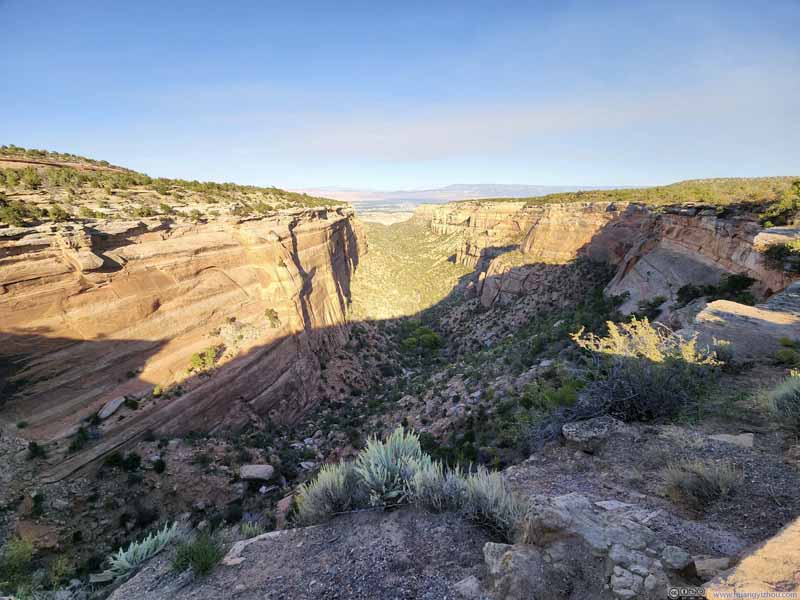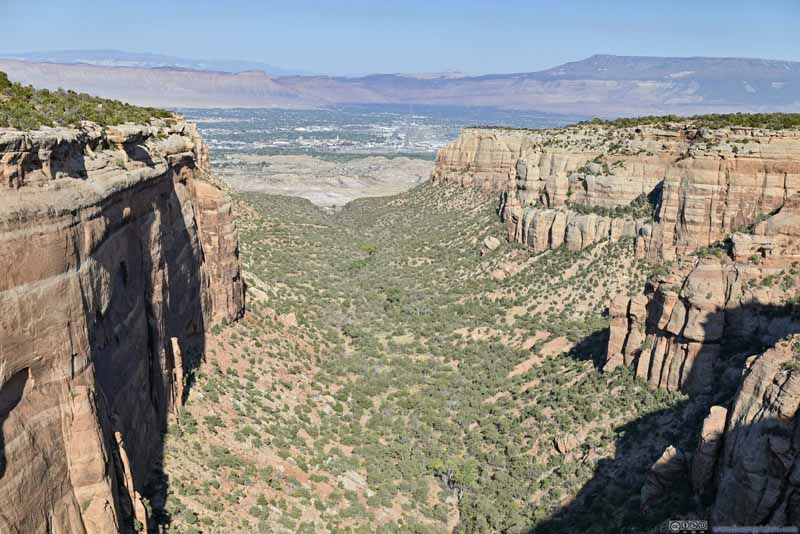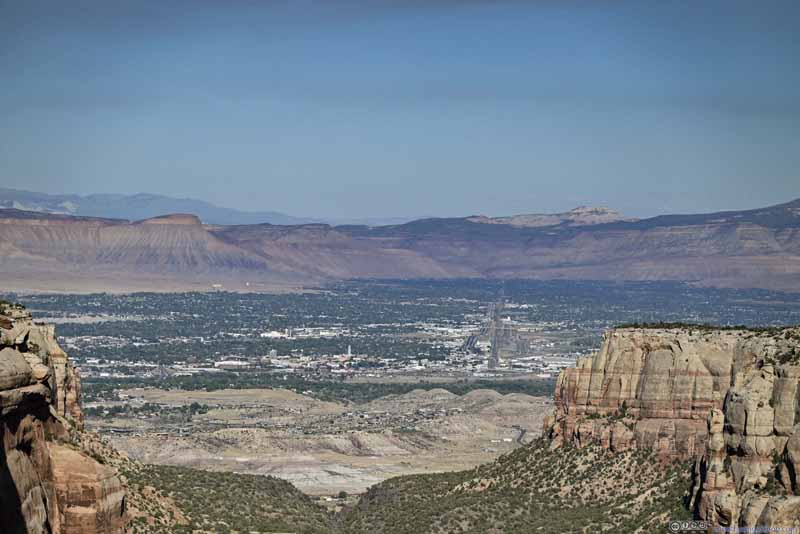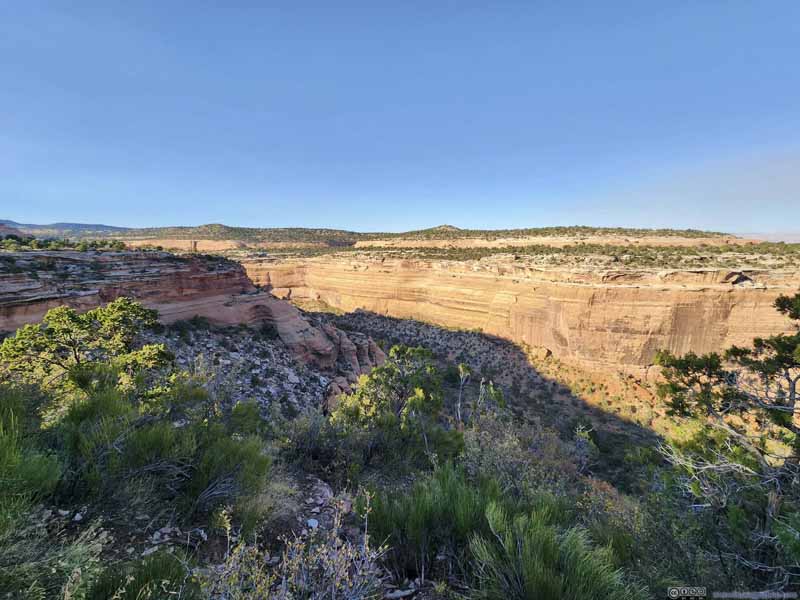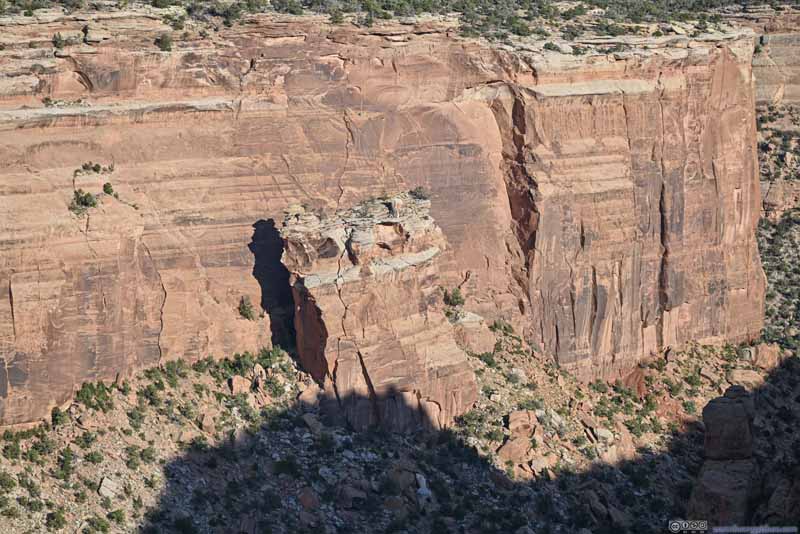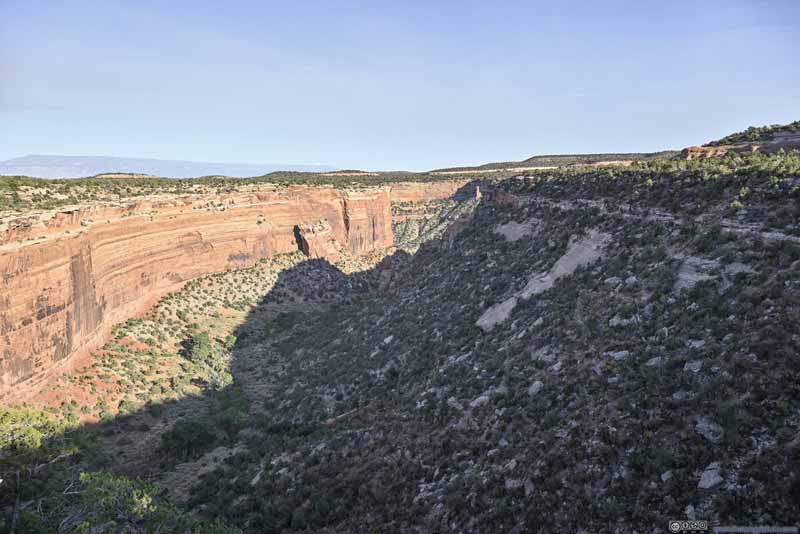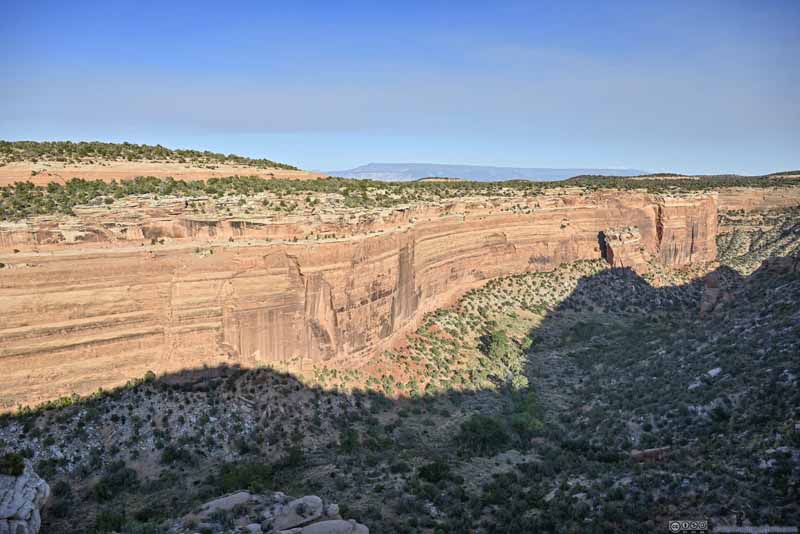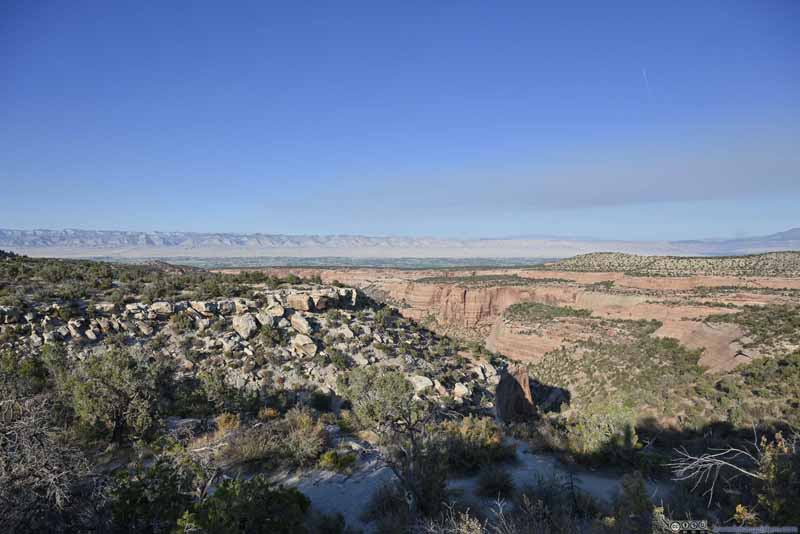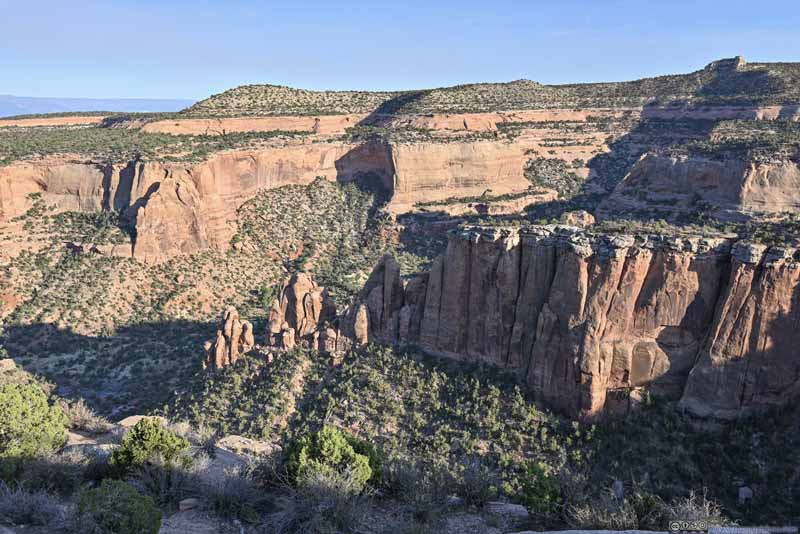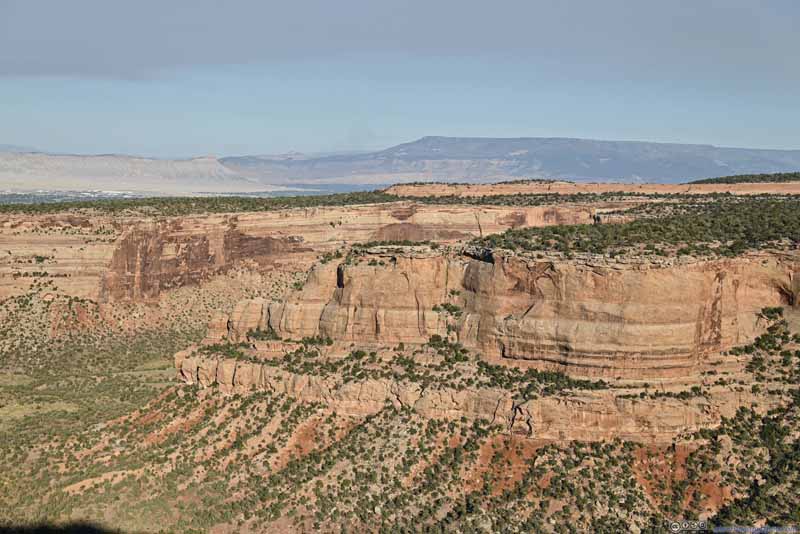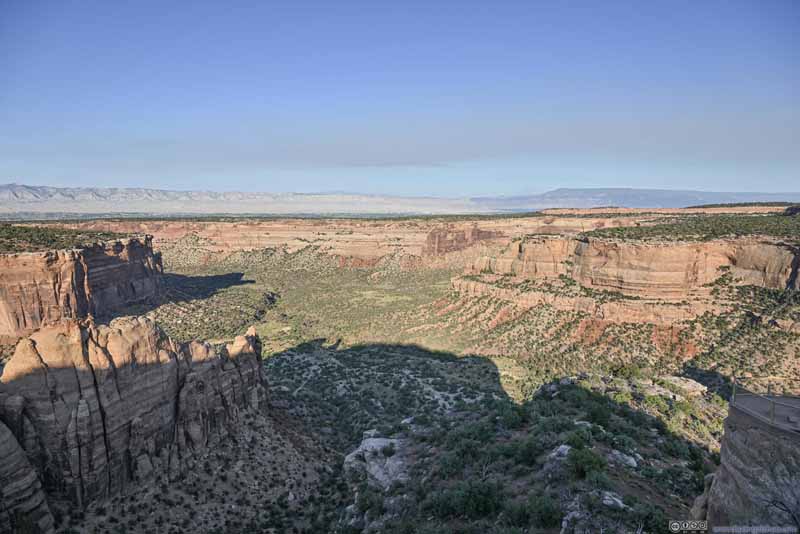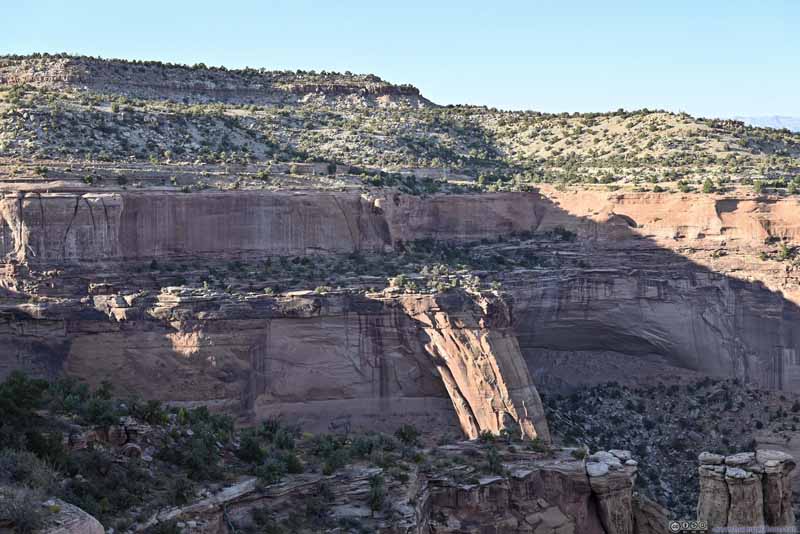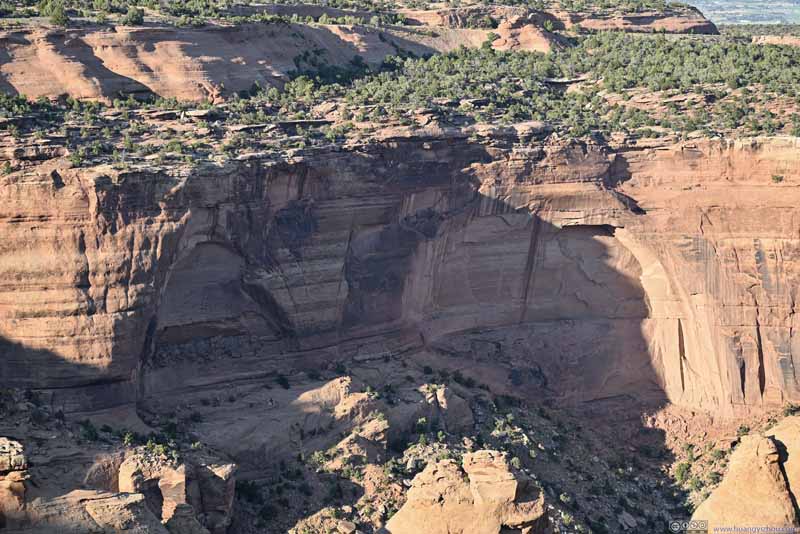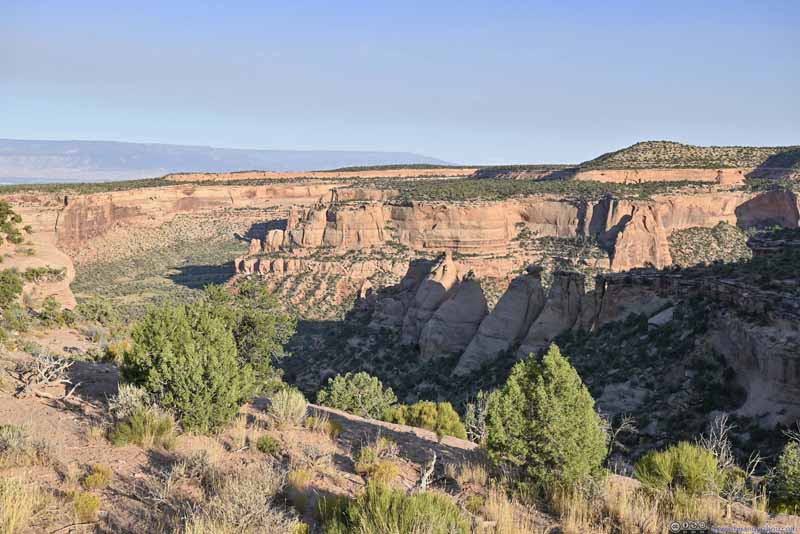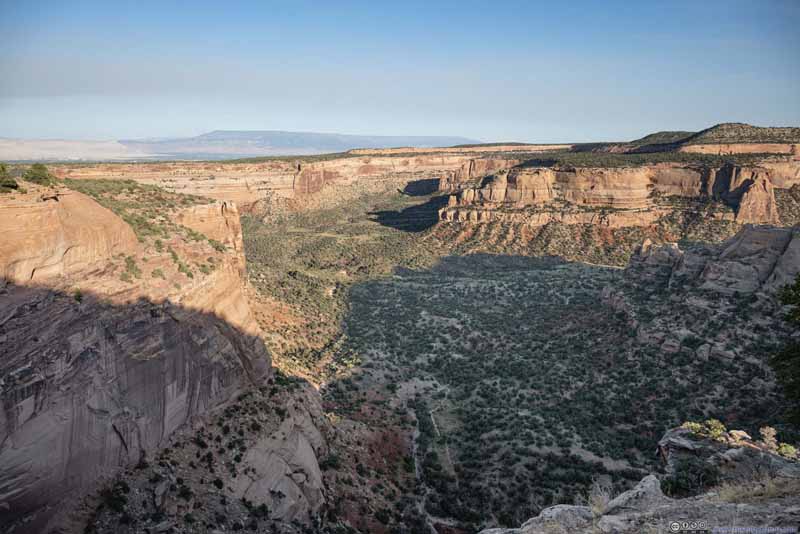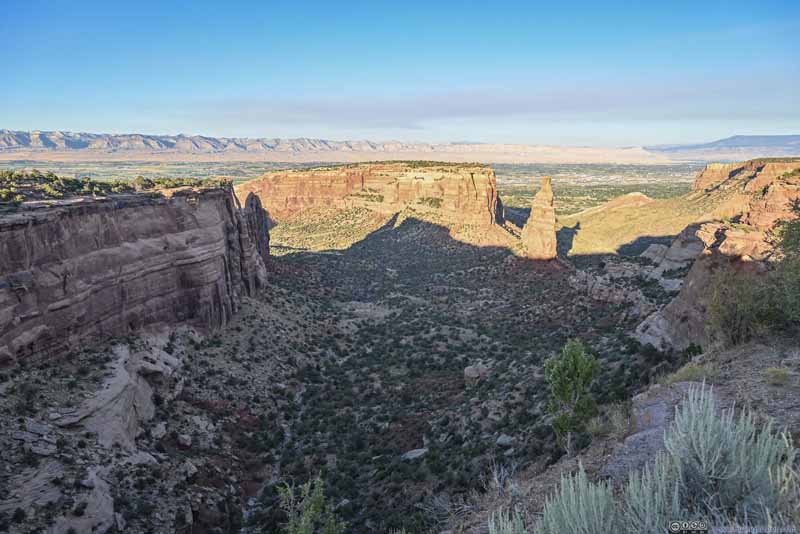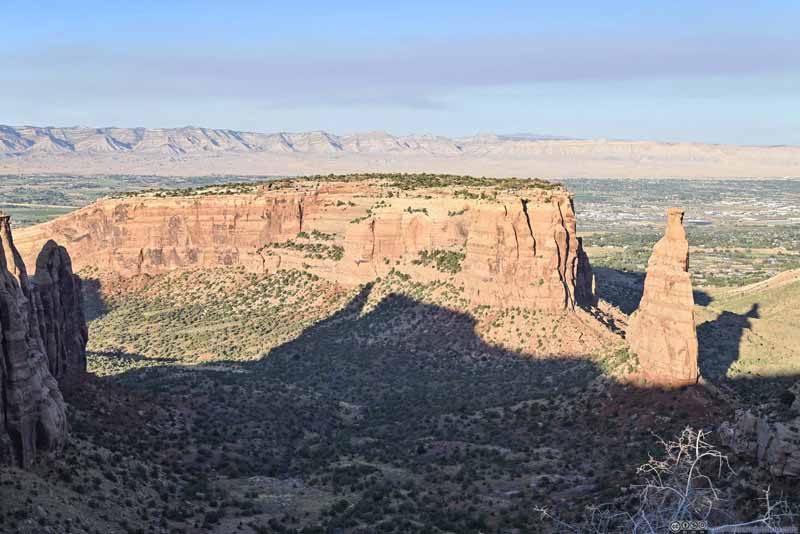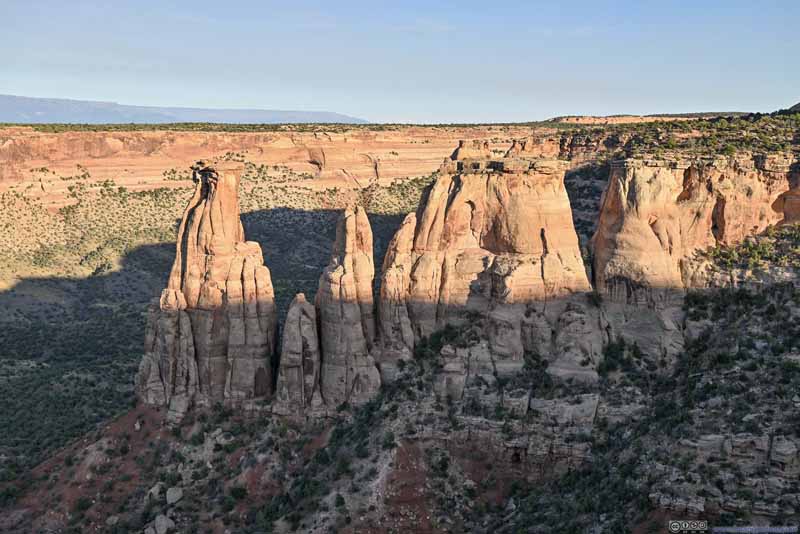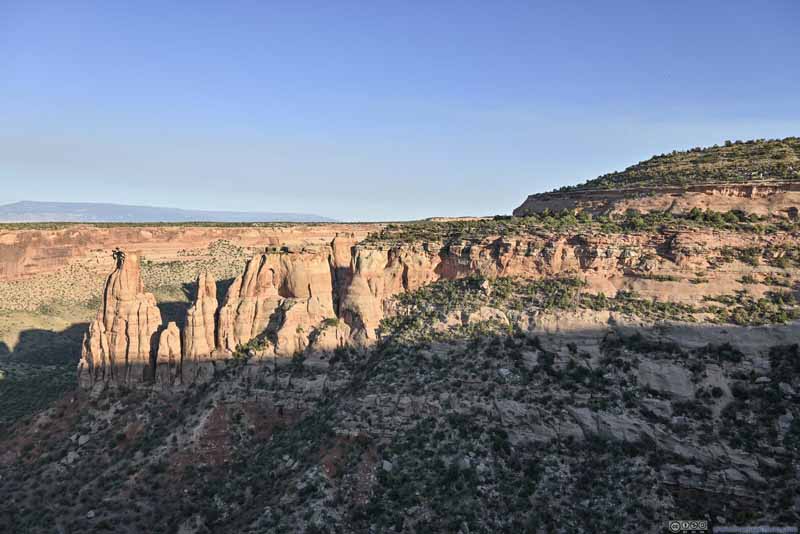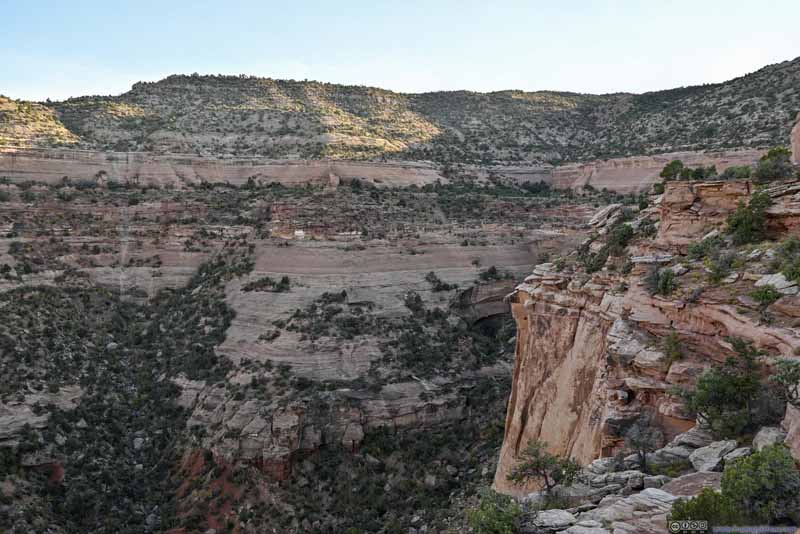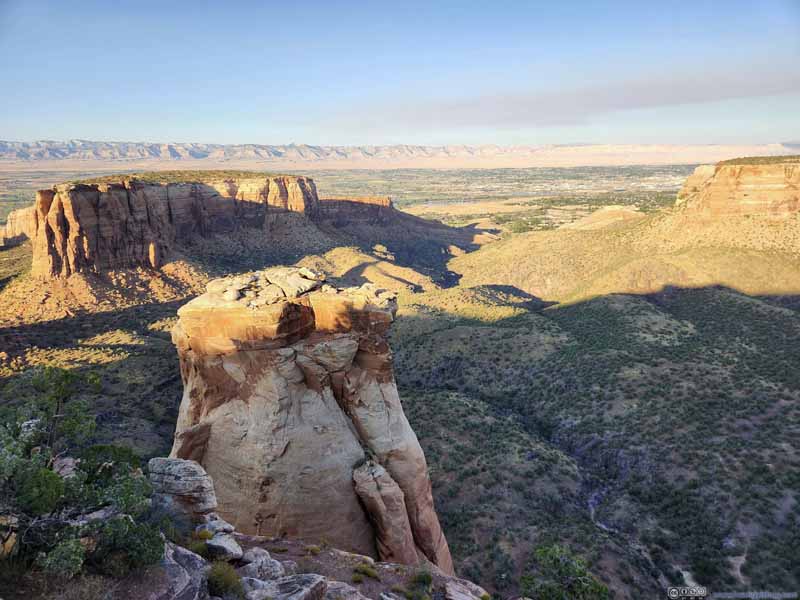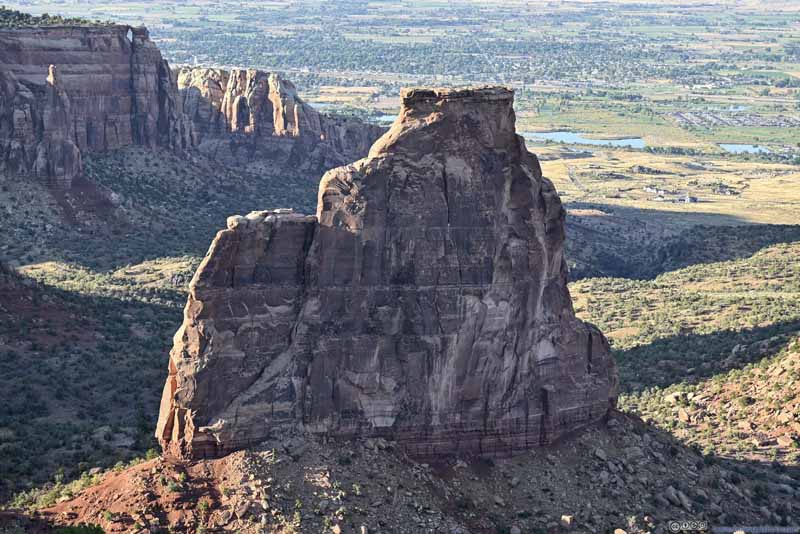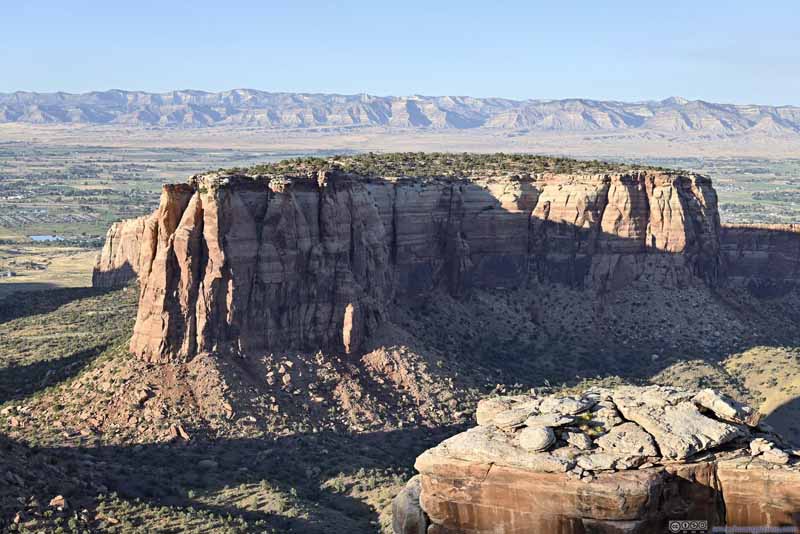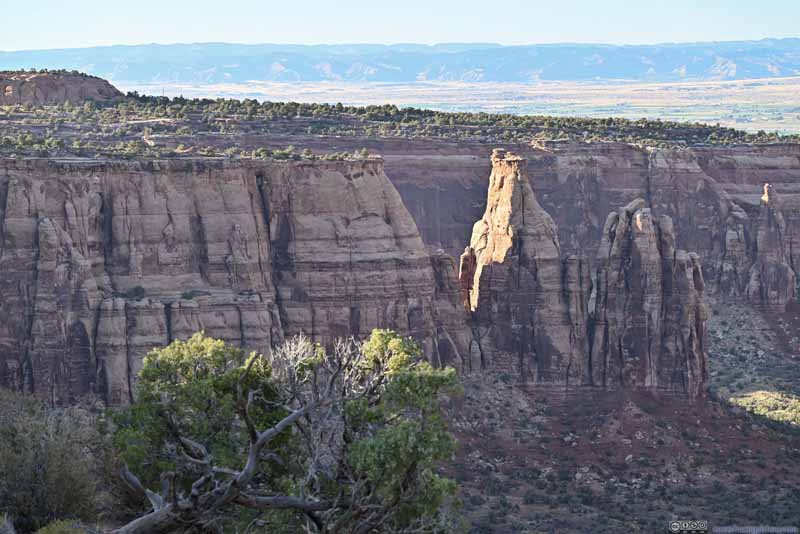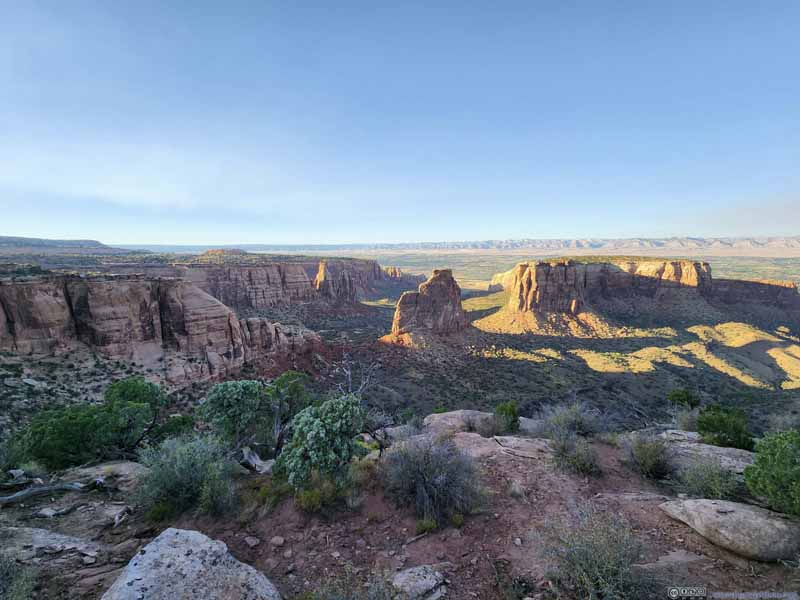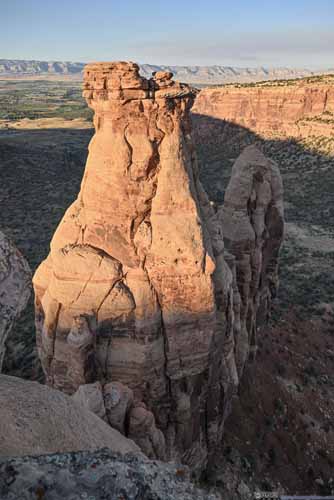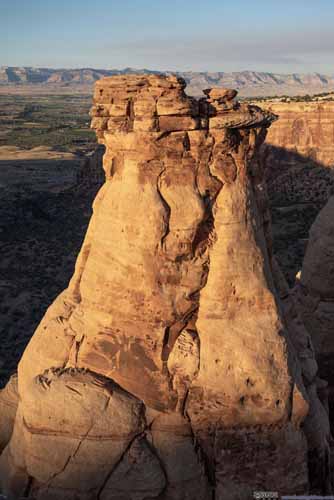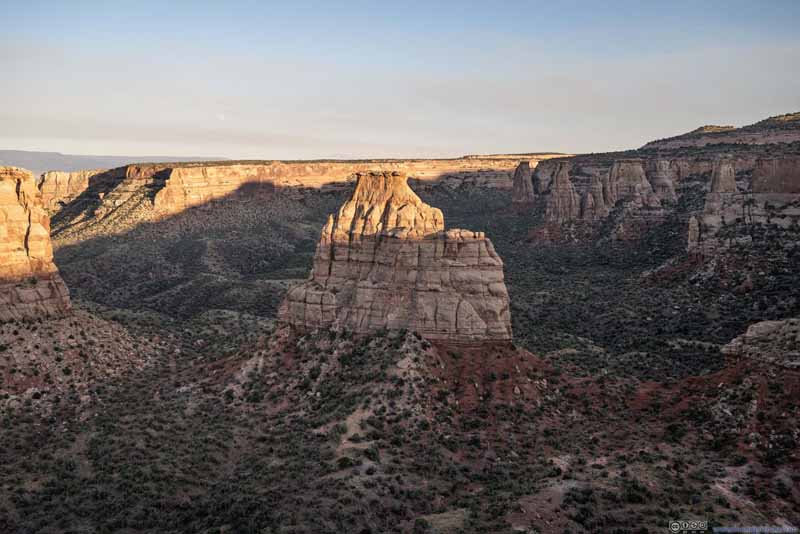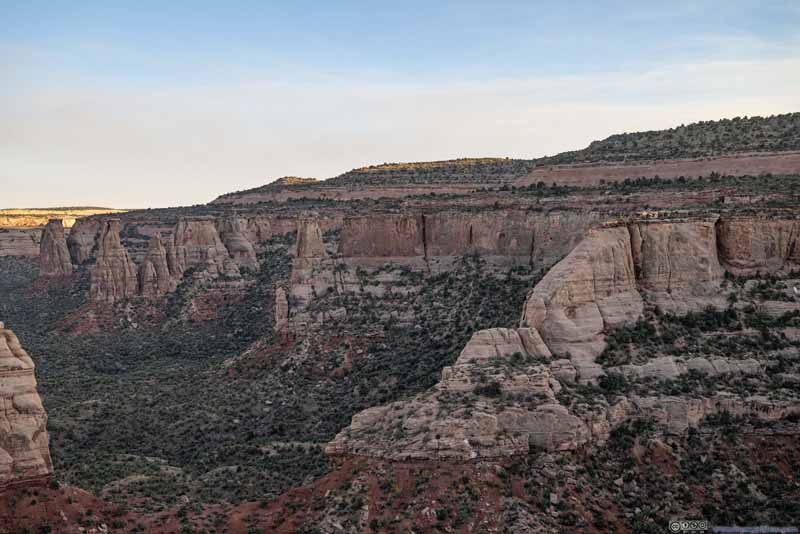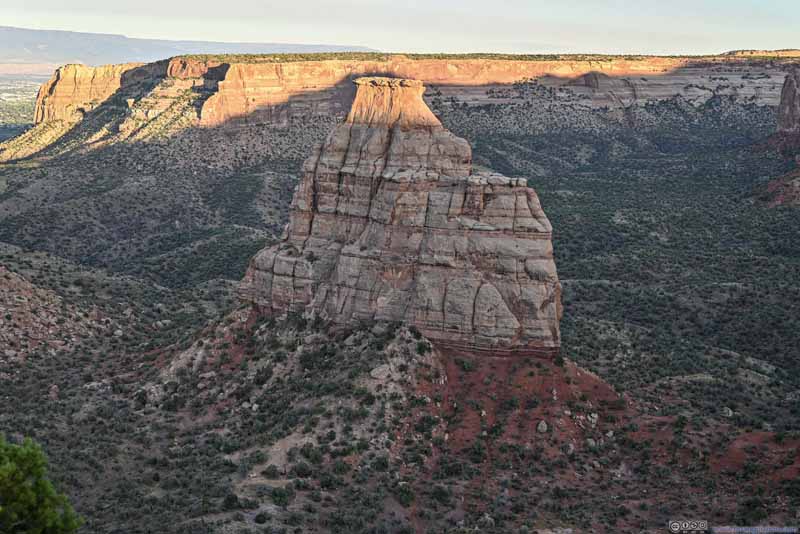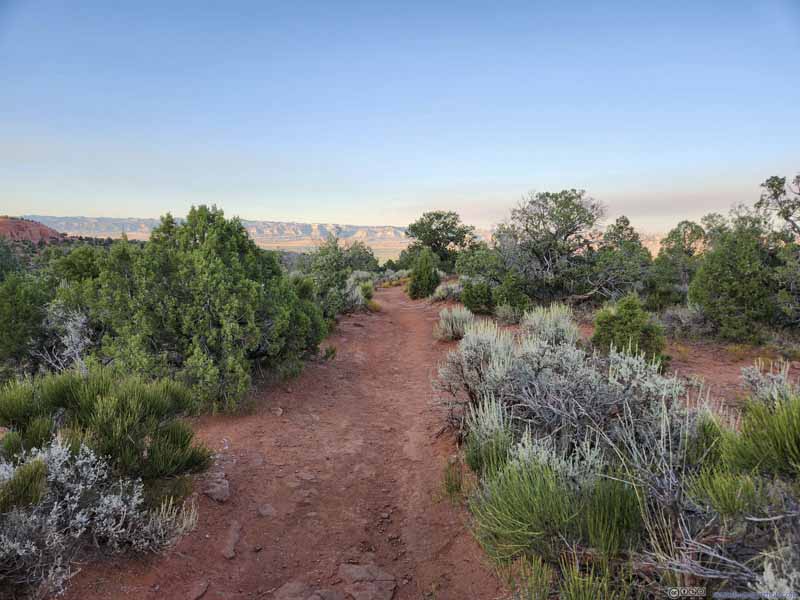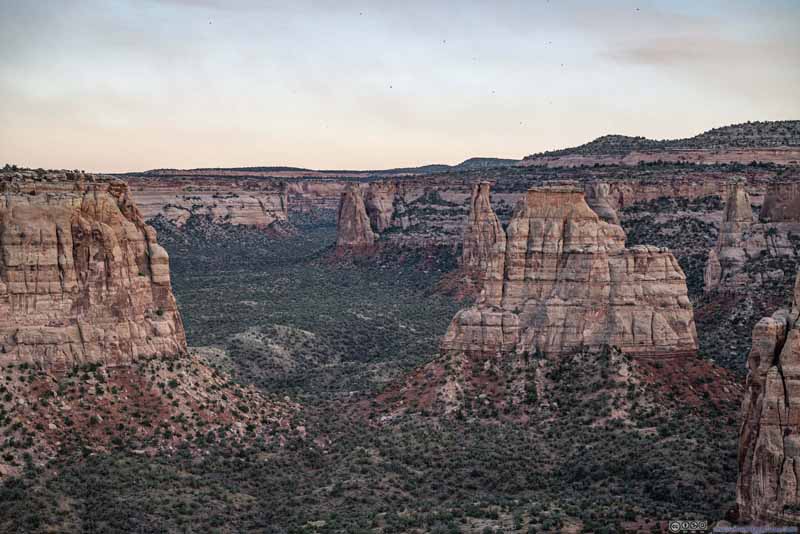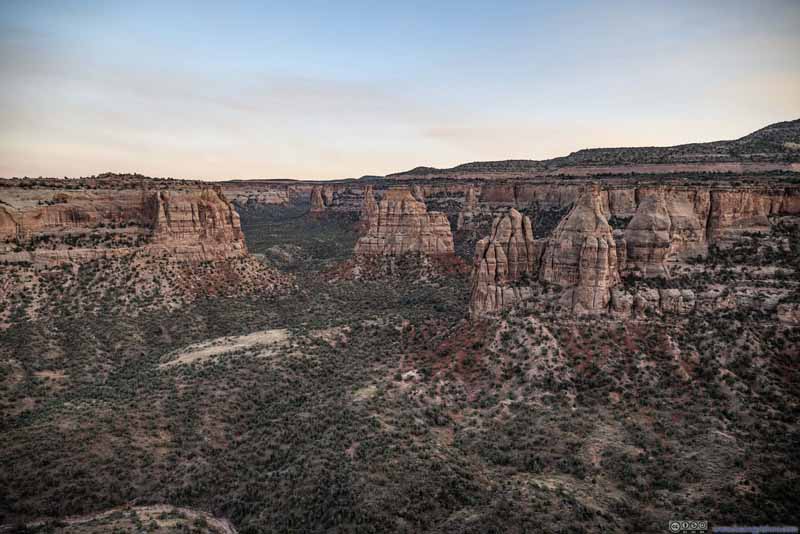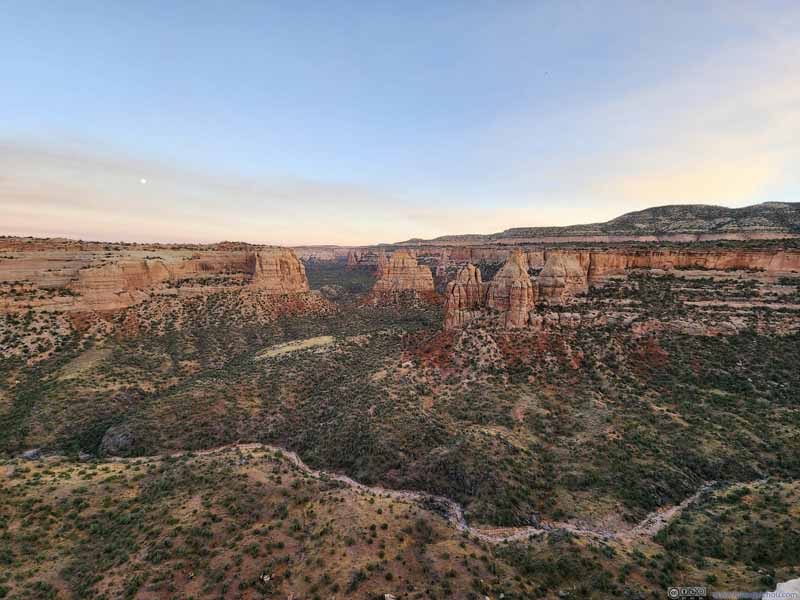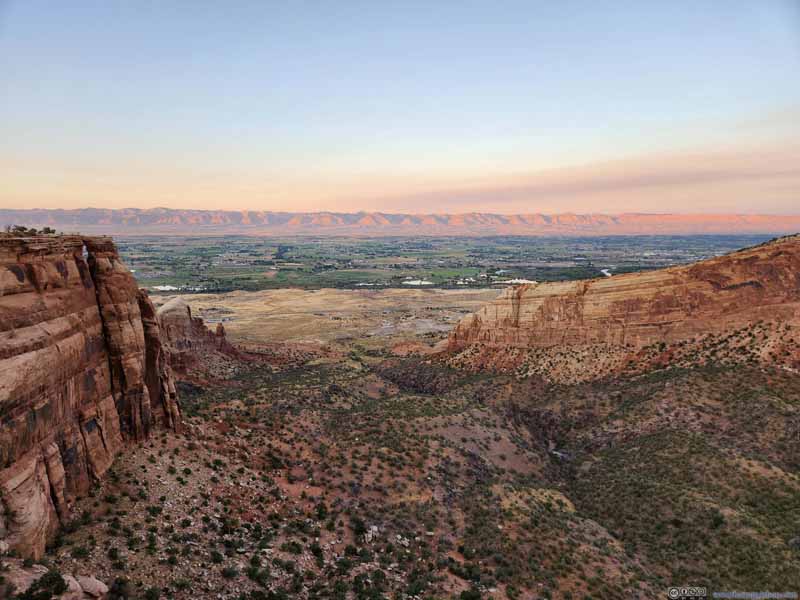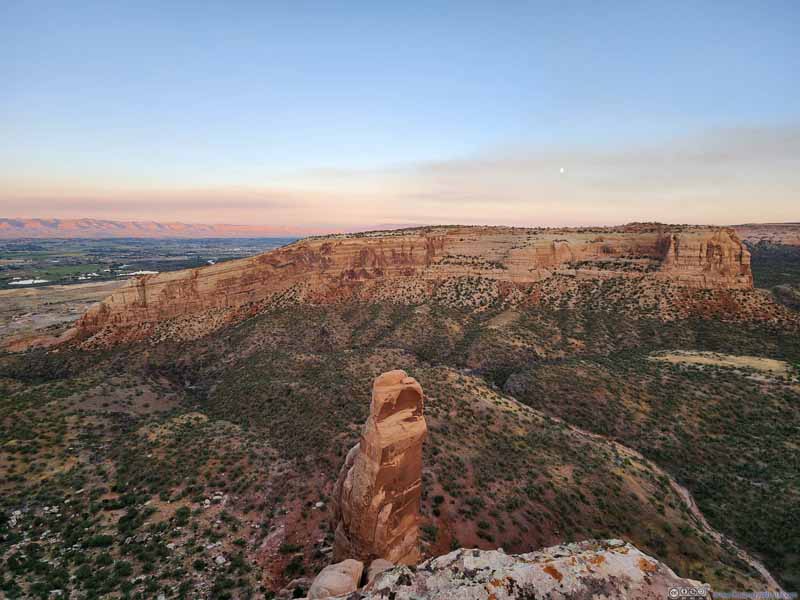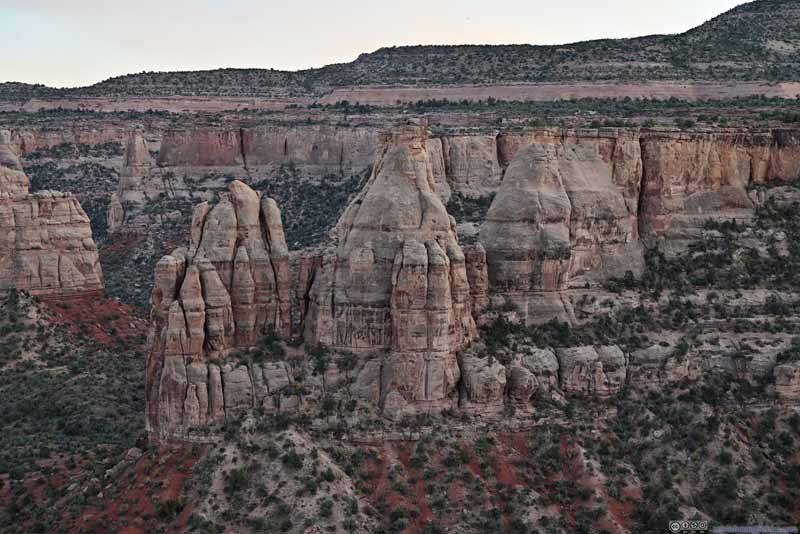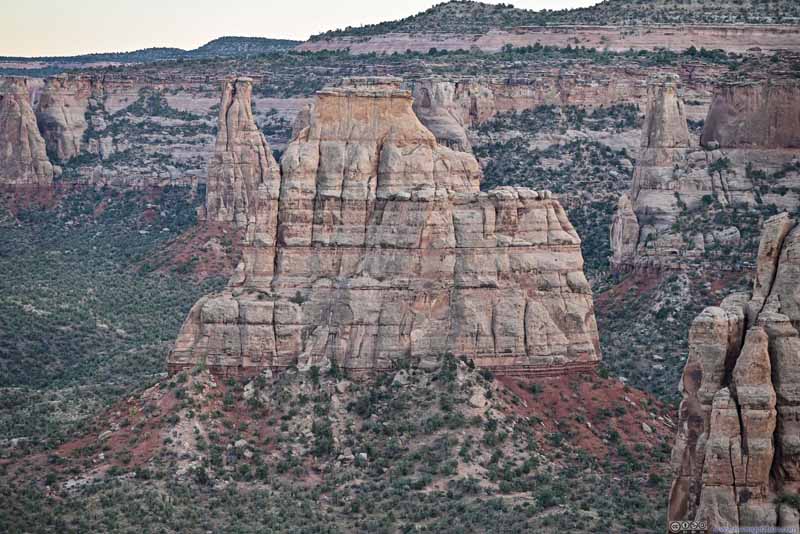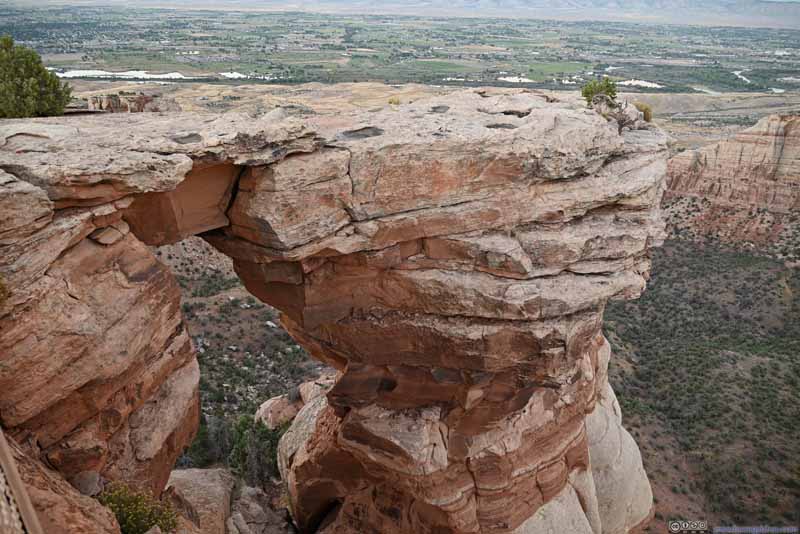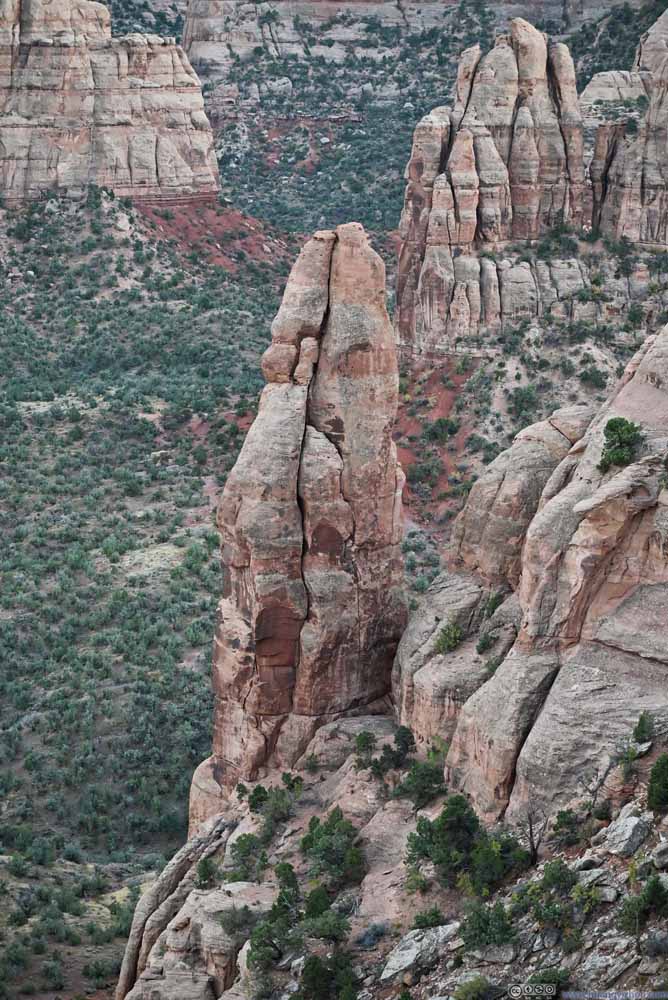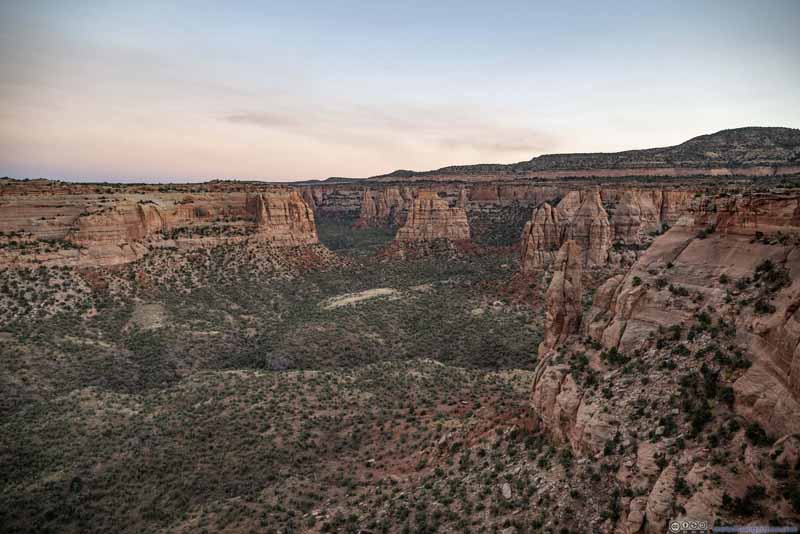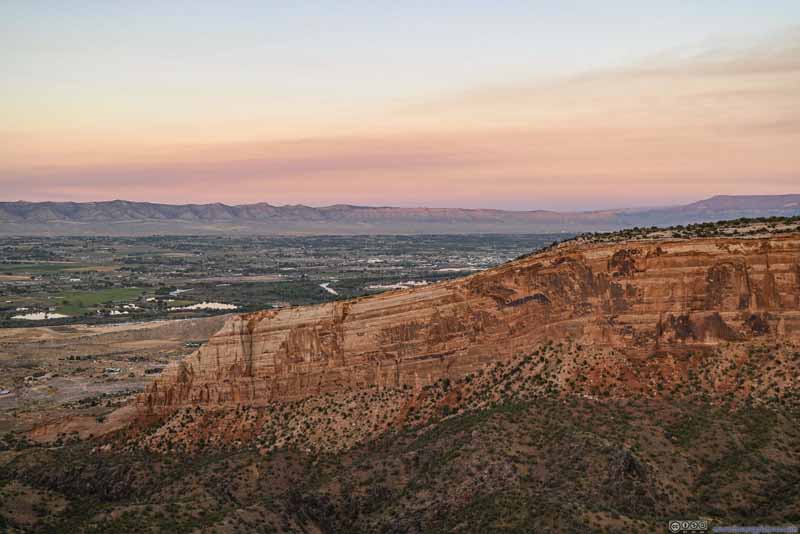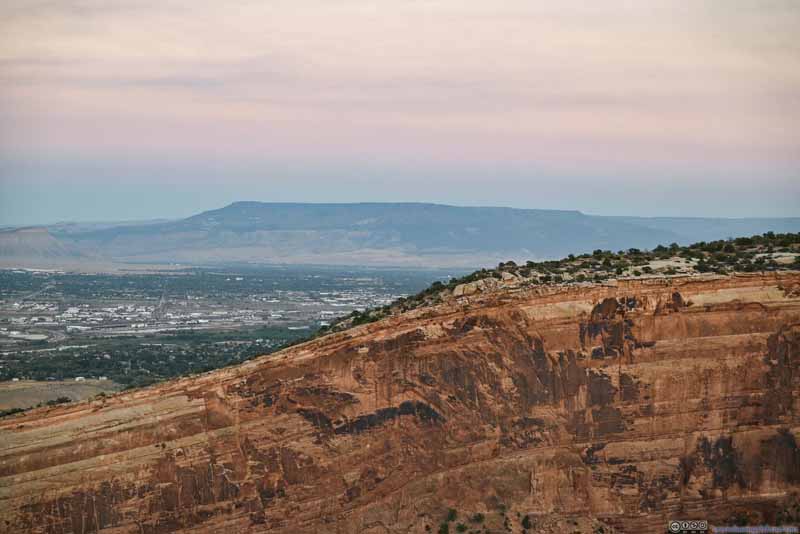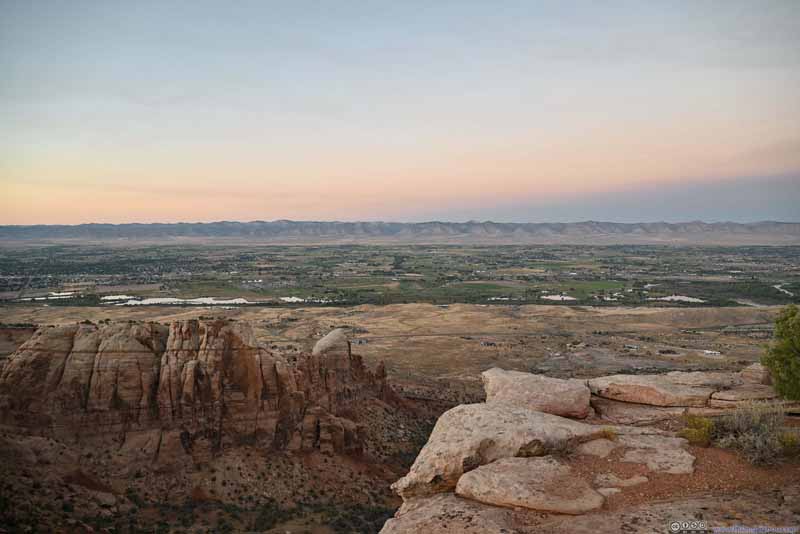Updated on April 23, 2024
Day 8 of Autumn 2023 Trip to Mountain States, Colorado National Monument
The eighth day of my autumn 2023 trip to the mountain states. I spent the day in Colorado National Monument, among its sheer-wall canyons and impressive butte formations.
As mentioned in the previous posts, I planned to visit Grand Junction back in 2020, which due to COVID didn’t happen. After spending a few days in western South Dakota, I felt there’s an opportunity to add Grand Junction (and western Colorado as a whole) onto this trip, so I gladly did.
Despite its name of “Colorado National Monument”, I felt the landscape in the park shared more familiarities with nearby Utah. (That’s why I originally planned to check it out alongside the national parks near Moab, Utah back in 2020.) In particular, it’s like a hybrid but miniature version of Canyonlands National Park and Monument Valley, featuring both canyons and buttes. Based on my experience visiting Canyonlands, “Colorado National Monument” was wetter with more vegetation. More importantly, it’s more accessible: It’s right next to a developed town, and 30 minutes to Grand Junction airport. In comparison, Canyonlands National Park was 30 minutes to the nearest town of Moab, and almost 2 hours to Grand Junction airport, the nearest major airport.
The park featured a road (Rimrock Dr) through its entirety from northwest to southeast. In addition, multiple trails accessed the park from the northeast. My plan for the day was to hike “Monument Canyon Loop” in the morning, which was the most popular trail in the park by AllTrails. In the afternoon, I planned to check out Rimrock Dr starting from the southeast, while catching twilight in the most scenic northwestern part of the park.
Monument Cayon Loop Trail
After a detour to Dinosaur National Monument, I made it to Fruita, CO late last night. After catching a good night’s sleep, I started the day relatively late. After breakfast, by the time I reached the trailhead and started my hike, it’s almost 11:30am.
On AllTrails, the loop was 7.2km long with 230m of elevation gain. I decided to take the loop in the clockwise direction, trying to keep views in front of me and sunlight behind me. This meant there was a steep section of descent in Wedding Canyon, to me that’s fine.
Following the clockwise direction, the first 1km of trail wasn’t very remarkable. Portions of it followed the fenced boundary of the monument, beyond which was people’s backyards.
Click here to display photos of the slideshow
After the first 1km, the trail made a right turn and entered Monument Canyon, where the elevation gain started. But the physical efforts were constantly rewarded, with views of sheer canyon walls that were occasionally only steps away, and the city of Grand Junction in the back beyond Monument Canyon.
Click here to display photos of the slideshow
In my opinion, the most aesthetic part of the hike was near the halfway point. It’s where three canyons met at the highest elevation point of the trail, with Monument Canyon to the east and south, and Wedding Canyon to the north. Views of the canyons were unobstructed and all around. In particular, to the south, Monument Canyon was lined with arrays of mesas that extended like peninsulas into the canyon. At the tip of many such mesas were collections of buttes. It’s only appropriate for the end of Monument Canyon to feature a throne, where the many buttes were like palace guards lining the carpet leading to it. Some of the buttes were named, though I struggle to associate the names to their shapes.
Click here to display photos of Monument Canyon.
At the intersection of Monument Canyon and Wedding Canyon lay Independence Monument, which was a butte / sandstone pillar that, unlike others in the park, was detached from nearby mesas and sort of stood on its own. The butte got such a name because John Otto, the park’s advocate and first custodian, made it a routine to climb Independence Monument and raise an American Flag on July 4, America’s Independence Day. I approached the monument from the east, where its skinny contour (p1-2 below) made it an impressive sight that drew me along the gentle uphill trail. It turned out that Independence Monument was shaped more like a slab than a tower, when viewed from other angles (p3-4 below) it didn’t feel as extraordinary.
Click here to display photos of the prominent buttes like Independence Monument.
Continuing on, I entered Wedding Canyon, which was named for the marriage ceremony of John Otto and Beatrice Farnham. Unfortunately, their marriage only lasted two months before Beatrice left John for good, due to differences in lifestyles.
Click here to display photos from Wedding Canyon.
A few more mesas lined Wedding Canyon to the west. On top of those mesas were established trails and park visitor centers, that meant I would get very used to such views later in the day.
Click here to display photos of the slideshow
In the end, I finished this hike in just over 2 hours.
A quick review of this trail. While I liked the variety of scenery it offered and enjoyed the immersive feeling of walking inside a canyon, it’s a hot day and I felt the loop was sort of long. Compared to my driving tour along the canyon rims later in the day, I felt this hike wasn’t as time-efficient in catching the views. Apart from the skinny angle of Independence Monument, some of the views from the trail were similar to what the overlooks along the canyon rim offered. As a result, if short on time, I felt it’s definitely fine to skip this trail.
After that, I headed to Grand Junction for lunch. After lunch, I headed to the park’s eastern entrance and took Devil’s Kitchen Trail.
Devil’s Kitchen Trail
During my trip I wasn’t completely sure what/where was “Devil’s Kitchen”. I correctly guessed it’s a group of boulders as pictured in this NPS website. I think the only way those boulders associated with the word “kitchen” is that there are near-vertical walls on three sides and an opening on one side, so if one add some firewood inside and put a giant pot on top, it could be a very primitive cooking setup (I considered this setup too uncivilized to be called a “kitchen”).
As for the trail, it’s a 1.9km out-and-back. The AllTrails map had a spur beyond the official “Devil’s Kitchen”, which caused me some confusion.
Click here to display photos of “Devil’s Kitchen”.
Click here to display photos of the slideshow
Once “inside” Devil’s Kitchen, the giant walls were both an awesome sight and a test ground for sound reflections. Towards its end, it took a few steps of scrambling (p3 above) to reach an upper platform, with views of plateau and mesas to the west (slideshow below). Similar views were also available from outside “Devil’s Kitchen”.
Click here to display photos from Devil’s Kitchen.
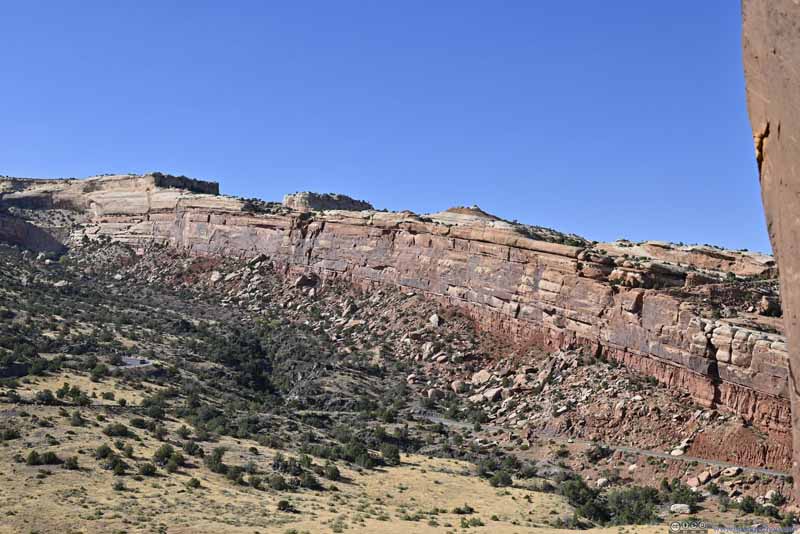
Rock Wall
Since I wasn’t 100% sure where “Devil’s Kitchen” was during my visit, and the AllTrails map led further south than where I was, I did more exploration further south. Vegetation was sparse enough in the region that I could make my own trail on the rocks/boulders. After some scouting, I found a narrow passage in between two rock walls that looked interesting (p1-2 below). I decided to name it “Devil’s Back Alley”, which was no doubt a more devious and attractive name than “Devil’s Kitchen”.
Click here to display photos of the slideshow
Emerging from the narrow passage I found an established trail to the south of “Devil’s Kitchen”, together with two other hikers that, like me, weren’t sure where “Devil’s Kitchen” was. I decided I had had enough playing hide-and-seek with devil for the day, so I headed back towards the trailhead.
Click here to display photos of the slideshow
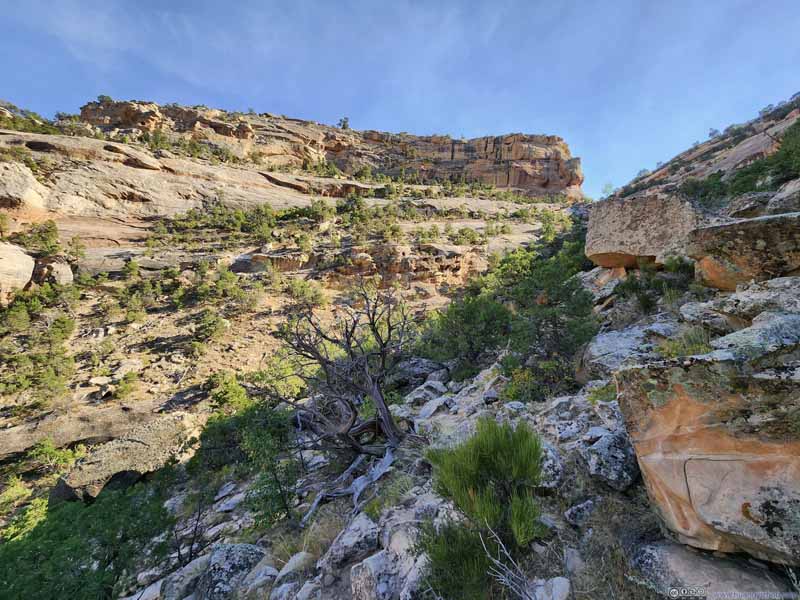
ValleyLooking towards the south. I didn’t find any obvious trails beyond this point, so I turned back.
Cold Shivers Point
After Devil’s Kitchen, I started driving along Rimrock Drive to the northwest. This was the first overlook along the road, with views overlooking a canyon. The actual “Cold Shivers Point” (p1-3 below) stood on top of a vertical cliff, with moderate exposure.
Click here to display photos from Cold Shivers Point.
More Overlooks
Then there were more overlooks along the way. It felt to me that the canyons in the southern part of the park were more narrow and less eroded, and thus featured few buttes. The ones later in the northern part were wider and more open, likely due to more erosion, and featured more buttes which were certainly the highlight of the park.
Click here to display photos of the slideshow
Click here to display photos of the slideshow
Click here to display photos of the slideshow
Grand View
Towards the north of the park there was a high density of overlooks. Among them was “Grand View”, where a butte (Grand View Spire) was just steps away from the parking area.
Click here to display photos from “Grand View”.
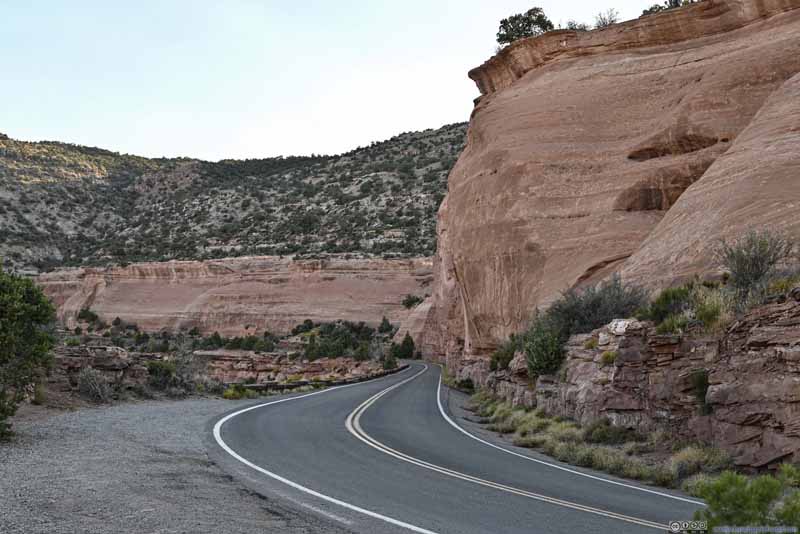
Road
Otto’s Trail
Then I checked out Otto’s Trail, named for the park’s advocate and first custodian. This was a 1.1km out-and-back with minimal elevation change, following one of the “peninsulas” into Monument Canyon. Just like previously at “Grand View”, beyond the end of the trail there were some buttes, the ones here were named “Pipe Organ”.
From the canyon rim, the end of Otto’s Trail was as close as one can get to Independence Monument. An NPS information board marked the route following which John Otto climbed this butte every Independence Day.
Click here to display photos of the slideshow
Book Cliffs View Surroundings
I reached Book Cliffs View minutes before sunset, when most of the canyons and buttes had retreated into shadows in their soft and approachable colors. Walking a short distance towards the south, I got arguably the best view of the day, on top of a cliff near the mouth of Monument Canyon. From there a series of buttes scattered around in Monument Canyon, as if casually posing for a group photo, under the vibrant colors of twilight. It showcased the best and most wonderous landscapes of the park in a single shot, of its sheer canyon walls, ubiquitous mesas, and rugged buttes. No wonder the park’s visitor center and campgrounds were nearby.
Click here to display photos of Monument Canyon.
To the north of Book Cliffs View, the opening of Wedding Canyon brought into view the town of Fruita, and a distant line of mountains shaped like books on a shelf (hence the name of the overlook). The meandering Colorado River made its shiny presence reflecting the still-glowing skies, among farmland and suburbs that were slipping into darkness.
Oh, there’s also an interestingly shaped Window Rock (p1 below). Honestly, I thought “bridge rock” was a more appropriate (but less aesthetic) name as a butte seemed connected to a nearby mesa by a rock bridge. Unlike Cold Shivers, due to the popularity here, NPS fenced the rock off.
Click here to display photos of the slideshow
After that, I headed out of Colorado National Monument, and concluded the day.
A quick note about Grand Junction: Throughout my entire trip, including Black Hills of South Dakota, Snowy Range mountains of Wyoming, and later San Juan mountains of Colorado, this was likely the hottest I ever felt. It’s the end of September and I really didn’t expect (nor prepare for) a sweaty hike underneath the sun, but that’s how I felt throughout the day.
As for Colorado National Monument, it made for a perfect day trip (just like Badlands National Park a few days earlier). I thought its most scenic part was near the visitor center / Book Cliffs View, other parts of it just didn’t feel that spectacular on their own.
END
![]() Day 8 of Autumn 2023 Trip to Mountain States, Colorado National Monument by Huang's Site is licensed under a Creative Commons Attribution-NonCommercial-ShareAlike 4.0 International License.
Day 8 of Autumn 2023 Trip to Mountain States, Colorado National Monument by Huang's Site is licensed under a Creative Commons Attribution-NonCommercial-ShareAlike 4.0 International License.

